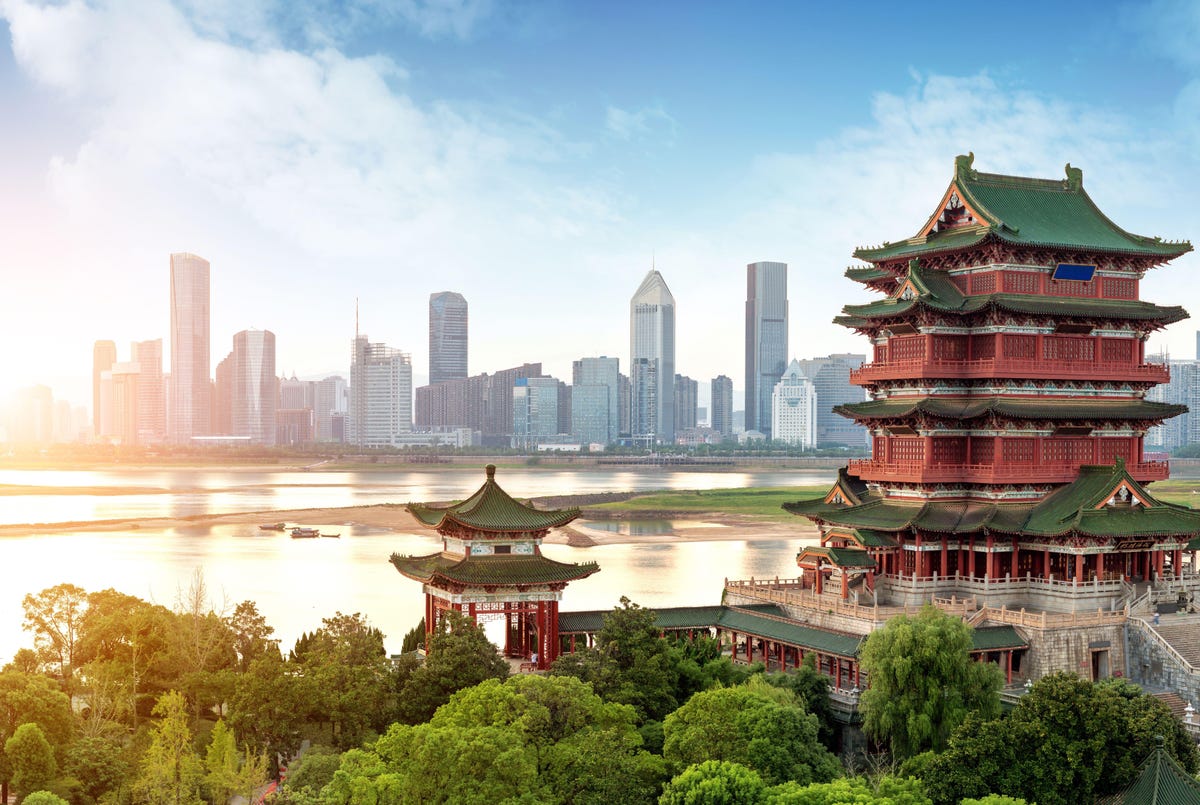
China
- • 100%apnews.com An American pastor detained in China for nearly 20 years has been released
The U.S. State Department says a Christian pastor from California has been freed from China after nearly 20 years behind bars and is back home in the U.S.

A Christian pastor from California has been freed from China after nearly 20 years behind bars and is back home in the U.S., the State Department said Monday.
David Lin, 68, was detained after he entered China in 2006, later convicted of contract fraud and sentenced to life in prison, according to the U.S. Commission on International Religious Freedom and advocacy groups.
[...]
The Biden administration has been working on David Lin’s case and those of other wrongly detained Americans in China for years and have raised them at every meeting with senior Chinese officials, including Secretary of State Antony Blinken’s meeting this summer with Chinese Foreign Minister Wang Yi in Laos.
[...]
Lin was formally arrested in 2009 on suspicion of contract fraud and, after a court review, was sentenced to life in prison, China Aid said.
The charge is frequently used against leaders of churches that operate outside state-sponsored faith groups, and it is a crime that Lin denied, according to the Dui Hua Foundation, a humanitarian group that advocates for prisoners in China. The commission on religious freedom says those leading and taking part in churches not sanctioned by the Chinese government “often face intimidation, harassment, arrest and harsh sentences.”
In China, all Christian churches must pledge loyalty to the ruling Communist Party and register with the government. Any unregistered congregation is considered an underground church whose activities are illegal in China. Beijing has always cracked down on “unlawful preaching,” and efforts have only intensified in the past decade.
[...]
Other Americans known to remain detained in China include Kai Li, a businessman who is being held on espionage-related charges that his family says are bogus, and Mark Swidan, who was sentenced on drug charges. The State Department’s office of the special presidential envoy on hostage affairs has designated the two as “wrongful detainees,” a label given to Americans jailed in foreign countries for what the U.S. government considers legally specious allegations or for improper motivations.
- • 100%www.tomshardware.com AMD hides Taiwan branding on Ryzen CPU packaging as it preps new chips for China market release — company uses black sticker to erase origin information
Yet more signs of hiding Taiwan branding.

cross-posted from: https://feddit.org/post/2894418
> Archived link > > [...] > > Apparently, AMD has placed a long black sticker on the lower left corner, seemingly to remove mentions of Taiwan. That appears to be convenient timing as the new 7600X3D chips are slated for release in China on September 20, and the country has a history of forbidding mentions of Taiwan on product packaging. > > The hidden text shows the origin of the Ryzen processor: “AMD processors are diffused and/or made in one or more of the following countries and/or regions: USA, Germany, Singapore, China, Malaysia, or Taiwan.” > > [...] > > We can surmise that the company is doing this to soothe Beijing’s ruffled feathers, which claims Taiwan is part of China and has previously slapped import restrictions on products mentioning Taiwan as the place of manufacture. > > It isn’t the first time that AMD has seemingly acquiesced to the demands of the Chinese Communist Party (CCP). In January, it removed the ‘Diffused in Taiwan’ silkscreen from the Ryzen 7000 chips. Although the company says it did this to standardize production with the products from its Xilinx acquisition, it does have the convenient side effect of keeping Beijing happy. > > [...] > > This recent change — adding a sticker that covers ‘Taiwan’ on the box — doesn’t seem to have any other reason except to address the CCP’s likely complaints.
- www.thestatesman.com How the Chinese surveillance state is suffocating its citizen - The Statesman
Over the past decade and a half, the Chinese techno-authoritarian state has deeply entrenched itself in the day-to-day lives of citizens through the use of highly sophisticated surveillance technology.
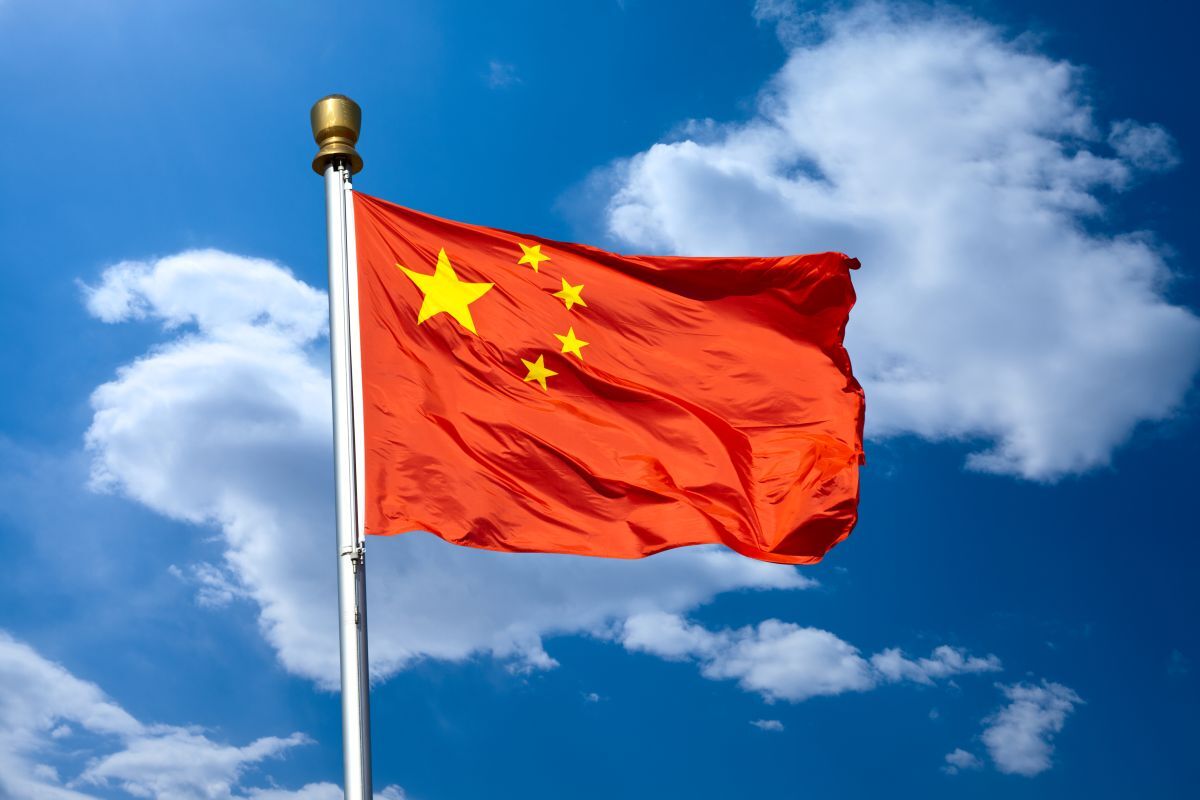
Over the past decade and a half, the Chinese techno-authoritarian state has deeply entrenched itself in the day-to-day lives of citizens through the use of highly sophisticated surveillance technology. Two of the world’s largest manufacturers of video surveillance equipment, Hikvision and Dahua, have revolutionized the industry and exported their products to hundreds of countries worldwide.
Chinese citizens are required to use their ID when engaging in various activities, from signing up for WeChat, the ubiquitous messaging app, to using super-apps like Alipay or WeChat Pay for tasks such as public transport, online shopping, and booking movie tickets.
This extensive network allows the government to track citizens’ everyday activities and create detailed profiles, effectively establishing a Panopticon state of censorship and repression.
The most prominent feature of China’s surveillance state is its extensive network of facial recognition cameras, which are nearly ubiquitous. The Chinese government launched a programme known as Skynet in 2005, which mandated the installation of millions of cameras throughout the nation.
This initiative was further expanded in 2015 with the introduction of SharpEyes, aiming for complete video coverage of ‘key public areas’ by 2020.
The government, in collaboration with camera manufacturers such as Hikvision and Dahua, framed this as a progressive step towards developing ‘smart cities’ that would enhance disaster response, traffic management, and crime detection.
However, the technology has been predominantly employed for repressive purposes, reinforcing compliance with the Communist Party of China.
[...]
Although many of the ‘threats’ identified by this system may turn out to be false alarms, the omnipresent vigilance of the state ensures that even the slightest dissent from citizens is swiftly suppressed.
[...]
China has become the first known instance of a government employing artificial intelligence for racial profiling, a practice referred to as ‘automated racism’, with its extensive facial recognition technologies specifically identifying and monitoring minority groups, particularly Uyghur Muslims, who have been subjected to numerous human rights violations by the Chinese Communist Party (CCP).
[This inlcudes] mass detentions, forced labour, religious oppression, political indoctrination, forced sterilisation and abortion, as well as sexual assault.
In Xinjiang, an extreme form of mass surveillance has transformed the province into a battleground, with military-grade cyber systems imposed on the civilian population, while the significant investment in policing and suppressing Uyghur Muslims has established Xinjiang as a testing ground for highly intrusive surveillance technologies that may be adopted by other authoritarian regimes, and the Chinese government has been known to collect DNA samples from Uyghur Muslims residing in Xinjiang, a move that has drawn widespread international condemnation for its unethical application of science and technology.
[...]
The Chinese government has adeptly formulated legislation that unites citizens and the state against private enterprises. Laws such as the Personal Information Protection Law and the Data Security Law, both enacted in 2021, impose stringent penalties on companies that fail to secure user consent for data collection, effectively diverting scrutiny away from the state’s own transgressions.
[...]
- www.phayul.com China establishes propaganda center to intensify global propaganda efforts on Tibet - Phayul
Phayul.com is one of the most popular & successful Tibetan news website in English. With daily readers touching over 12,500 and still growing. It features news and views on Tibet.
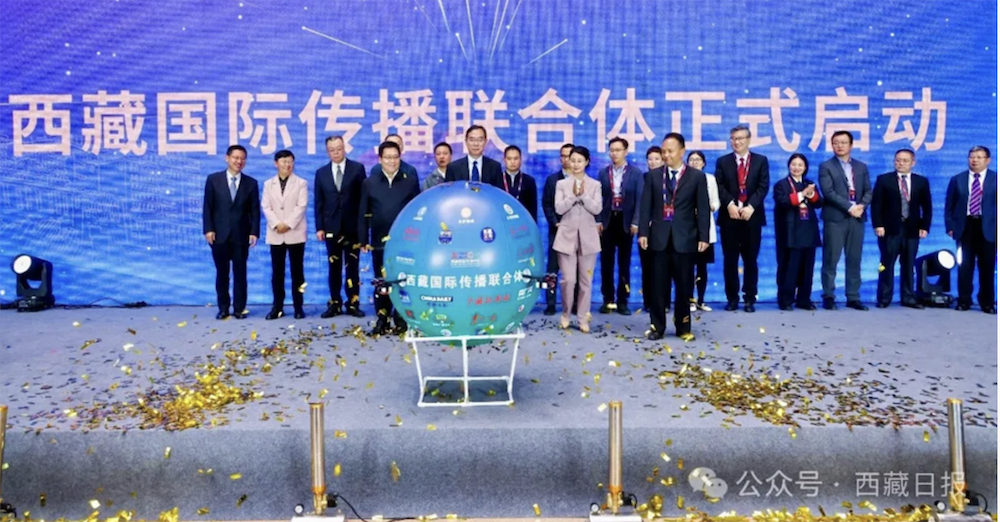
In a strategic move to bolster its international propaganda on Tibet, the Chinese government has launched the ‘Tibet International Communication Center’ on September 2, coinciding with Tibetan Democracy Day. This initiative is part of China’s broader strategy to control and shape the global narrative on Tibet, presenting it from a perspective aligned with its political agenda.
The establishment of the latest propaganda center was made during a group study session of the Political Bureau of the CCP Central Committee in May 2021. On September 2nd, a meeting was held in Lhasa, attended by representatives from the so-called Tibet Autonomous Region’s Propaganda Department and China Foreign Language Bureau related to Tibet. During this round-table conference, which focused on how to build effective international communication for Tibet, the “Tibet International Communication Center” was officially established.
[...]
According to Chinese state media, Wang Junzheng, Communist Party Secretary of the so-called Tibet Autonomous Region, highlighted at the meeting the critical importance of external propaganda as a key directive of the Communist Party and the state. He reiterated the need to uphold and implement President Xi Jinping’s ideology on Tibet.
[...]
The International Campaign for Tibet (ICT), a U.S.-based advocacy group, reported on this development, expressing concern over China’s expanding efforts to dominate the global narrative on Tibet.
[...]
The ICT warned that China’s propaganda efforts concerning Tibet are likely to intensify, potentially through increased collaboration with state-controlled media and the China Tibetology Research Center, expanded use of social media platforms to promote pro-China propaganda, and pressure on international organisations to adopt China’s stance on Tibet. The group expressed concern that, as China’s propaganda machine strengthens, the voices of Tibetans will be further marginalised on the global stage, and reports of repression within Tibet may increasingly go unheard.
- www.rappler.com South Korean military removes Chinese-made cameras at bases – Yonhap
The cameras were not used for guard operations such as along the heavily fortified Demilitarized Zone between the two Koreas, but for monitoring training groups and perimeter fences at bases, a report says

cross-posted from: https://feddit.org/post/2813353
> South Korea’s military recently removed about 1,300 Chinese-made surveillance cameras installed at bases, concerned about potential security risks, Yonhap news agency reported on Friday, September 13, citing an unnamed military official. > > The cameras were designed to be connected to a specific server in China, but no actual data was leaked, Yonhap said. > > They had been supplied by a South Korean company, with their Chinese origin determined during equipment inspections earlier this year, the report cited the official as saying. > > The cameras were not used for guard operations such as along the heavily fortified Demilitarized Zone between the two Koreas, but for monitoring training groups and perimeter fences at bases, the report said. > > South Korea’s defense ministry said on Friday it is in the process of collecting the foreign-made cameras and replacing them with others. The ministry declined to confirm where the cameras were made. > > Last year, Australia’s foreign minister said its defense and foreign ministries were removing surveillance cameras made by Chinese-run firms from their facilities after reports that the technology posed a security risk.
- apnews.com Dozens of Hong Kong journalists and some of their families have been harassed, media group says
A leading media group reports that dozens of Hong Kong journalists have faced harassment in recent months.
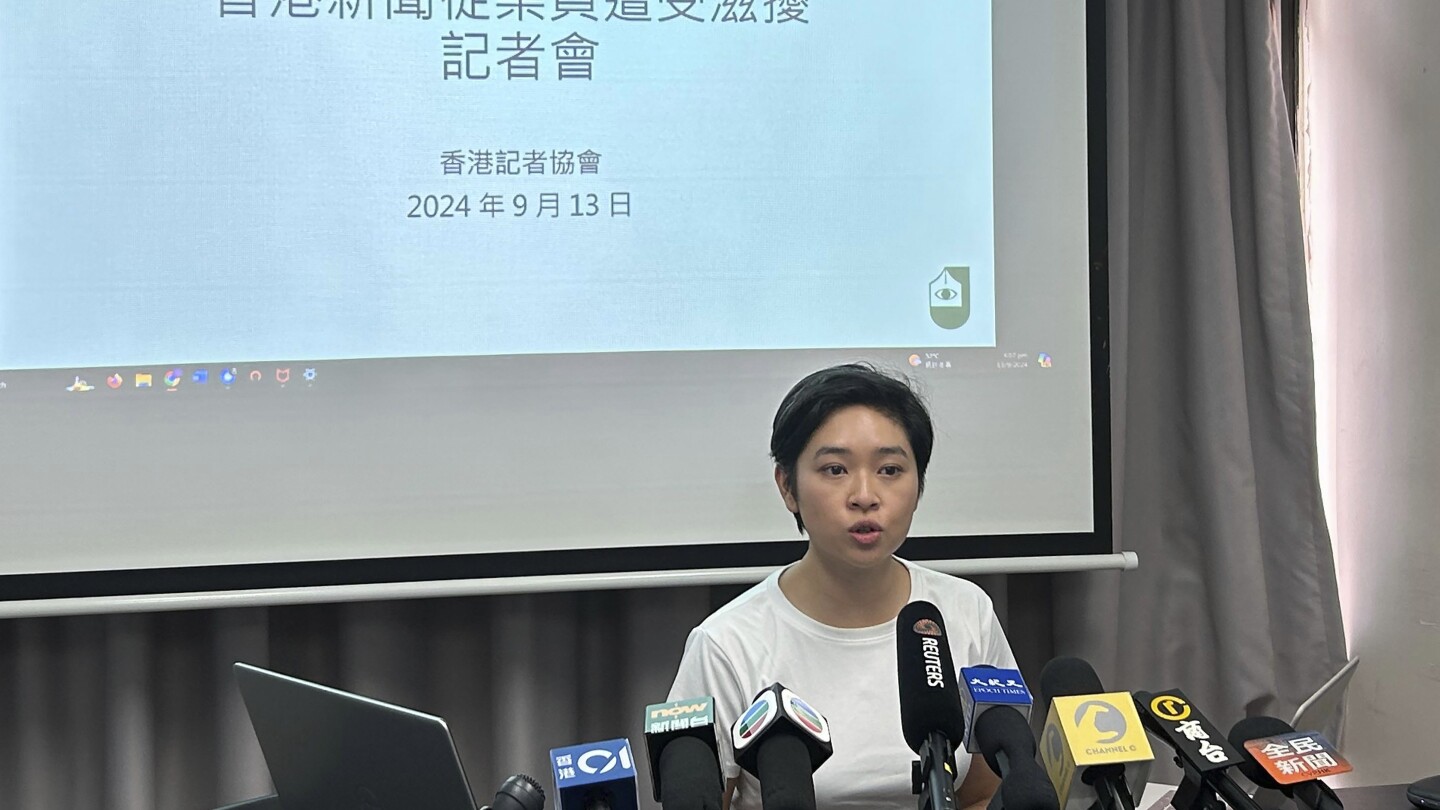
'Large-scale harassment:' Dozens of Hong Kong journalists and their family members and associates have been harassed in recent months, a leading media professional group says
Drastic political changes have created an increasingly restricted environment for journalists in the semi-autonomous Chinese city once regarded as a bastion of press freedom in Asia.
Selina Cheng, chair of the Hong Kong Journalists Association, said in a news conference that this was the largest-scale harassment of reporters in the city that they are aware of.
Cheng said her group found that people describing themselves as patriots have sent anonymous complaints to at least 15 journalists’ family members, the employers of their family members, their landlords and other related organizations since June. She said the attacks appeared to be “systematic and organized” and that she was among those targeted.
Many of the letters and emails threatened the recipients that if they continued to associate with the reporters in question or their family members, they could be endangering national security, the association said.
In addition, posts on Facebook targeting at least 36 journalists called their articles inflammatory and described legitimate reporting as problematic or illegal, the group said. Violent online threats were also made against some journalists and members of the association’s executive committee, it said.
"This type of intimidation and harassment, which includes sharing false and defamatory content, and death threats, damages press freedom in Hong Kong and we should not tolerate it,” Cheng said.
[...]
Since the introduction of a Beijing-imposed national security law in 2020, two news outlets known for critical coverage of the government, Apple Daily and Stand News, were forced to shut down after the arrest of their senior management, including Apple Daily publisher Jimmy Lai.
[...]
In March, Hong Kong enacted another security law that deepened fears over civil liberties and press freedom. In August, two former editors of Stand News were convicted in a sedition case widely seen as a barometer for the future of the city’s media freedoms. The ruling drew criticism from foreign governments.
Hong Kong was ranked 135 out of 180 territories in Reporters Without Borders’ latest World Press Freedom Index, down from 80 in 2021.

Description
This chart shows the share of Chinese respondents who ordered from the following online shops in the past 12 months.
- www.saveuighur.org Justice For All’s Save Uyghur Campaign Calls Out United Nations High Commissioner for Human Rights for Weak Response to China’s Genocidal Policies - Save Uyghur
Washington, D.C. — Sept 11, 2024 For Immediate Release Contact: Hena Zuberi hena@justiceforall.org (202) 922-5878 In a pointed response to the statement delivered by Volker Türk, United Nations High Commissioner for Human Rights, at the 57th session of the Human Rights Council, Justice For All‘s Sav...

Uyghur human rights group calls out UN High Commissioner for Human Rights for his weak response to China’s genocidal policies
In a pointed response to the statement delivered by Volker Türk, United Nations High Commissioner for Human Rights, at the 57th session of the Human Rights Council, Justice For All‘s Save Uyghur Campaign strongly criticizes his failure to address the egregious human rights abuses committed against the Uyghurs and other Turkic Muslims in Chinese-occupied East Turkistan.
On August 31, 2022, after a multi-year assessment, the UN High Commissioner for Human Rights (OHCHR) concluded that “serious human rights violations have been committed” in East Turkistan. Justice For All is outraged that, after two years, the Chinese government not only defies the OHCHR assessment’s findings but also steadfastly refuses to implement the High Commissioner’s urgent recommendations.
These include the immediate release of all individuals arbitrarily detained, an end to all forms of intimidation and reprisals against Uyghurs and other Turkic Muslims in East Turkistan and abroad, and a thorough investigation into allegations of horrific human rights abuses, including torture, sexual violence, forced labor, and forced medical treatment. This blatant disregard for human dignity and international norms is absolutely unacceptable.
Mr. Türk’s remarks included only two fleeting references to China’s oppressive policies, failing to capture the systemic and targeted atrocities that the Uyghur community has faced. Türk stated, “Despite some important advancements, 30 years after the universal commitments on women’s rights in Beijing, the shadow of patriarchy still looms large,” and “In China, undue restrictions on civic space continue to be imposed in the name of national security and social stability.” These statements are grossly inadequate when addressing the severity of the situation, which includes gender-based violence against Uyghur women such as forced sterilizations, abortions, sexual abuse, and forced marriages to Han-Chinese individuals, as well as the mass arbitrary detention of Uyghurs in concentration camps, prisons, and forced labor camps across East Turkistan.
[...]
- chinamediaproject.org Farewell, Microblog - China Media Project
In Xi’s “New Era” signs now point to the untimely end of the Weibo Era. Is it possible any longer to build a platform strategy around recognized public intellectuals?
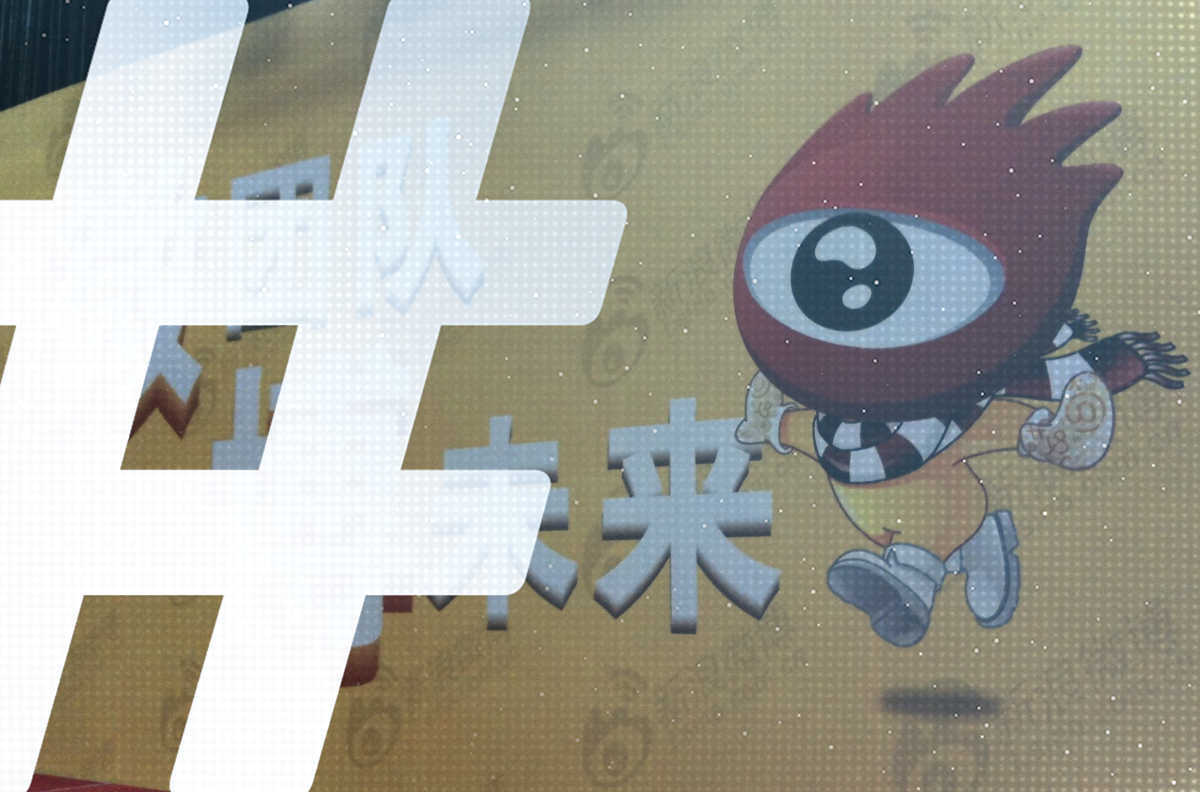
In its early stages in 2009, [Chinese social media platform] Sina Weibo built its success on larger-than-life personalities known as the “Big Vs” (大V), who were meant to be magnets attracting conversation — and much-desired traffic — to the platform. The strategy worked, and by 2010 media would proclaim that China had entered the “Weibo Era” (微博时代). But within several years, the idea of a privately-owned tech platform building mass audiences outside of CCP control would become untenable for the leadership. A 2014 crackdown on “Big Vs” was the beginning, some might say, of the inexorable unraveling.
Now, 15 years on from the “beta” launch of Weibo, it may be time to ask: has life gone out of the platform?
[...]
China’s leaders, who today still make it their business to “guide public opinion” through the control of media and communication, had long bristled at the notion of “public intellectuals” outside the official system. The emergence of op-ed pages in commercial metro newspapers (都市类报纸) in the early 2000s had given rise to broader range of voices. In December 2004, the Central Propaganda Department-run Guangming Daily (光明日报) ran a series of scathing attacks on the notion of “public intellectuals,” which it dismissed as a dangerous product of Western social thought.
[...]
A decade on from Xi Jinping’s concerted push to rein in the “Big Vs” created by Weibo’s original celebrity push, the platform seems a shadow of itself. Competition from more personalized apps like Douyin and Xiaohongshu, and unrelenting pressure facing more controversial accounts, have driven a mass migration of Weibo users. Today, writes 36Kr, Weibo’s special community feel has vanished. The open discussions that once buzzed around public intellectuals are gone.
[...]
Politics has of course made its own contributions to the disappearance of public intellectuals from the platform. Former Global Times editor-in-chief and “Big V” Hu Xijin (胡锡进) has not posted anything on Weibo since late July, when his influential account was suspended for an unauthorized interpretation of the Third Plenum decision. On August 7, the account of Lao Dongyan (劳东燕), a criminal law professor at Tsinghua University with a respectable following of her own, was also banned for defending her criticisms of upcoming internet IDs for Chinese netizens.
Forums like Zhihu (知乎) or WeChat Moments still provide a town square of sorts for groups to form, but these are smaller, devoid of the larger-than-life “public intellectuals” of Weibo that once served as known voices for netizens to rally round [...] Many [public intellectuals] are laying low, which makes China’s internet a far quieter place.
- chinachronicler.com Commentary: How Huawei and Apple swung and missed for Chinese consumers
TOKYO: If there is one thing that the late Apple co-founder Steve Jobs is remembered for, it’s that he knew how to put on a show. Long before

- japan-forward.com Tibetan Villages Driven to Poverty by China's Forced Relocation Program | JAPAN Forward
Beijing has been uprooting entire Tibetan villages, stripping them of economic self-sufficiency and eroding their culture under the guise of modernization.
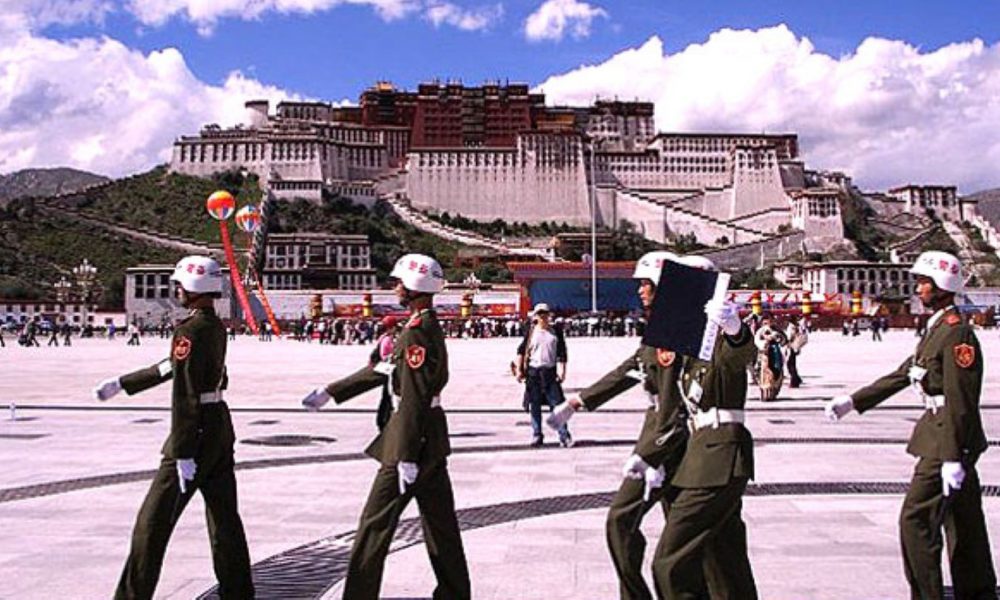
China's government has been systematically uprooting hundreds of Tibetan villages and nomads from their ancestral lands. It has been forcibly relocating them to centralized settlements under the guise of "poverty alleviation" and environmental protection.
This mass relocation campaign has accelerated dramatically since 2016. It is eroding Tibetan culture, disrupting traditional livelihoods, and leaving many relocated families impoverished and dependent on government subsidies.
-
Over 930,000 rural Tibetans have been relocated since 2000. A staggering 76% of these relocations occurred just since 2016.
-
The Chinese government frames these relocations as voluntary poverty reduction efforts. However, evidence suggests they are often coercive and driven by Beijing's political agenda to assimilate Tibetans and tighten control over the region.
-
Many of these relocations involve moving entire villages hundreds of kilometers from their original homes. Authorities refer to the relocated Tibetans as "border guardians," essentially turning them into civilian sentries along China's contested frontiers with India, Nepal, and Bhutan. More insidiously, they serve as a form of "demographic engineering," permanently altering the population of contested areas to strengthen China's territorial claims.
-
A local government document indicated some villagers may receive around 20,000 yuan (less than $3,000 USD) per year for relocation. A few earn extra income from border patrol work. But for many, the relocations mean a complete loss of economic self-sufficiency.
-
The mass relocations are just one component of China's broader efforts to reshape Tibet. Increased surveillance, restrictions on religious practices, and Mandarin-language education policies all serve to undermine Tibetan identity and autonomy.
-
The government's heavy-handed approach demonstrates a fundamental disregard for the value of cultural diversity. It undermines the rights of minority populations to maintain distinct ways of life. This cultural erasure, masked as progress, is a form of soft ethnic cleansing that threatens to permanently alter the rich tapestry of ethnicities within China's borders.
-
International law prohibits forced evictions, making China's coercive relocation program a clear violation of human rights. The mass displacement of Tibetan communities threatens to irreparably damage Tibetan culture and identity. That way, Tibetan identity is in the hands of the Chinese party-state and is eradicated under different policy directives.
Far from alleviating poverty, these forced relocations are creating a class of displaced impoverished Tibetans. They have been made dependent on state subsidies and cut off from their traditional livelihoods and cultural roots.
"The unique Chinese style of imperialism and colonialism" as Beijing might like to call it if it succeeds, sees Tibet as its first prey and victim. However, the big, ambitious Chinese dream of expansion doesn't stop there. You can see what is happening in Southern Mongolia and Eastern Turkistan (aka the Uyghur Autonomous Region). Every neighboring people and nation of Communist China could face the same destiny unless the world is consciously watchful.
-
- www.hrw.org China: Free Taiwanese Political Activist
The Chinese government should immediately quash the conviction of and release a Taiwanese political activist who was sentenced to nine years in prison for “separatism.”
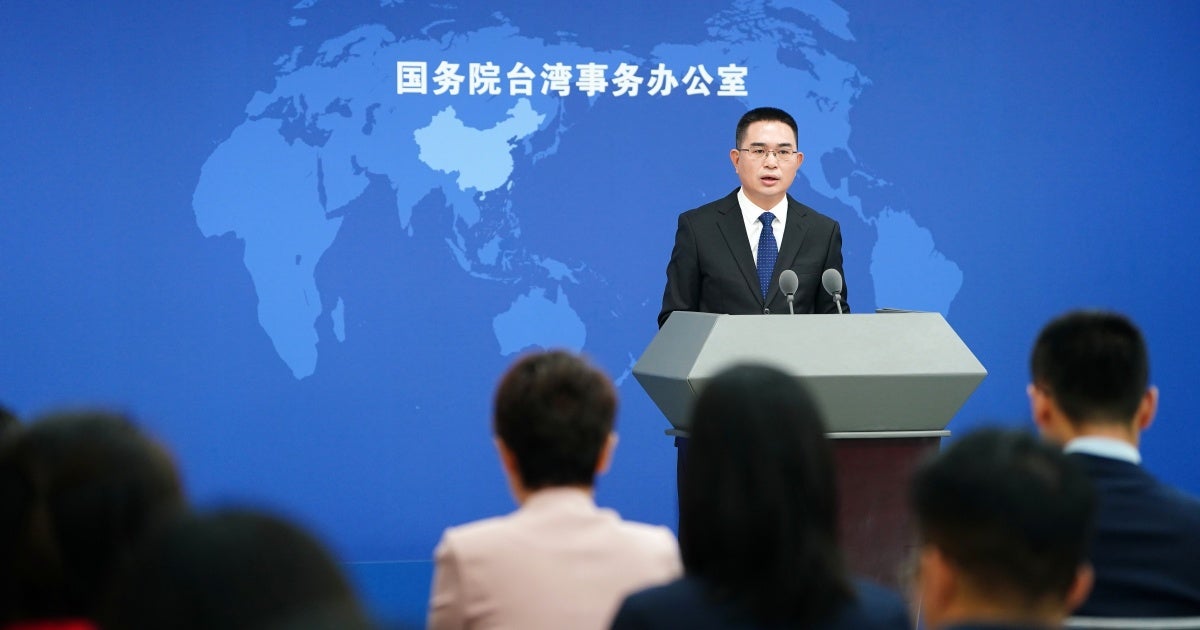
The Chinese government should immediately quash the conviction of and release a Taiwanese political activist who was sentenced to nine years in prison for “separatism,” Human Rights Watch said today. On August 26, 2024, a court in China’s Zhejiang province convicted Yang Chih-yuan (楊智淵), 34, for political activities carried out in Taiwan, a neighboring democracy over which the People’s Republic of China claims sovereignty.
The case is the first known in which the Chinese authorities have charged a Taiwanese national with “separatism” for allegedly seeking to split the country in violation of article 103 of China’s Criminal Law. The law is typically used in politically motivated prosecutions of Uyghurs, Tibetans, and other ethnic groups who are Chinese nationals.
“The Chinese government’s prosecution of Yang Chih-yuan for exercising his basic rights in Taiwan has effectively criminalized being Taiwanese,” said Maya Wang, associate China director at Human Rights Watch. “The use of a national security law coupled with an outrageous prison sentence appears to be Beijing’s latest attempt to intimidate the Taiwanese people and reinforce its claims of sovereignty over Taiwan.”
- chinaobservers.eu Xinjiang ‘Normalization’: China’s Next Phase in Assimilation and Propaganda – chinaobservers
Xi Jinping’s call for the “normalization” of politics in Xinjiang does not signal the end of the repressive policies in the northwestern province. Instead, it m
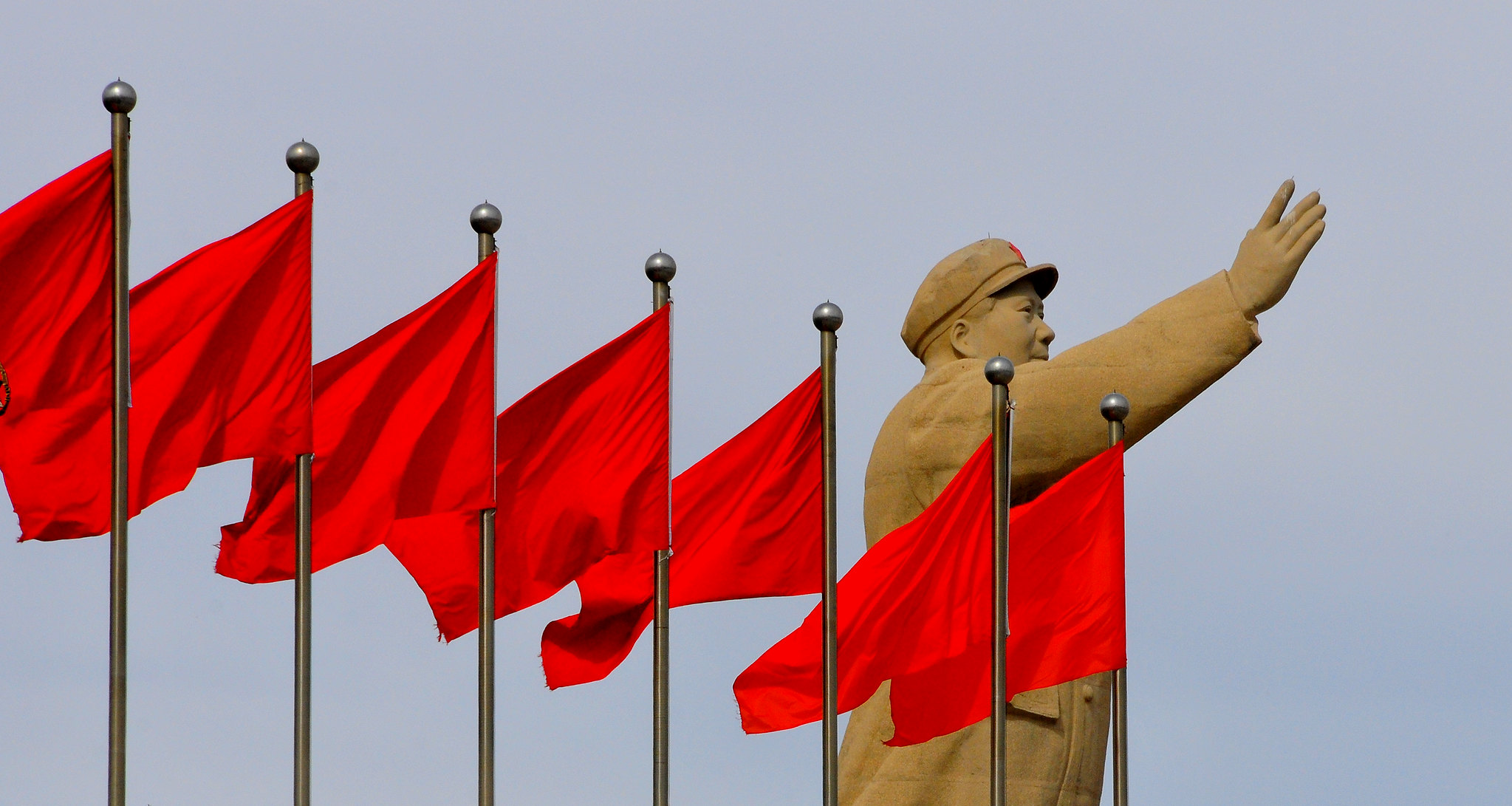
Instead, state media and officials highlight Xinjiang’s economic development as evidence of the success of past policies, promoting a Chinese concept of human rights that prioritizes the right to development and survival as fundamental. The [Chinese Communist Party] CCP views development as a pre-condition for the realization of human rights [...]
The economic development in Xinjiang is undeniable [yet] it remains questionable how much Uyghurs and other minorities genuinely benefit from these projects and what the true cost of this development is.
[...]
The CCP’s focus is on showcasing the achievements of China’s approach to human rights through the promotion of development, with Uyghurs increasingly highlighted not only in the context of poverty alleviation, but also as representatives of a minority group benefiting from Chinese development policies and as symbols of a unified Chinese identity.
[...]
In recent years, the Chinese government has sought to paint a positive image of Xinjiang by showcasing Uyghur heritage and culture as a major attraction for tourists. Uyghurs are often depicted dancing, celebrating Muslim festivals, and wearing their traditional clothes.
[...]
While the display of cultural heritage is prominently featured in the portrayal of Xinjiang’s development, Uyghur culture is clearly subordinate to Chinese culture. As Pan Yue, director of the National Ethnic Affairs Commission, states, Chinese culture serves as the binding element to create a unified Chinese identity, with ethnic minorities seen as “contributors to Chinese culture.” When officials describe Chinese identity as an inclusive umbrella term, it actually refers to a tightly controlled portrayal of ethnic minority cultures, limited to showcasing the success of a unified Chinese nation. This is not only achieved through external propaganda but (unsurprisingly) also through repressive policies aimed at assimilating and Sinicizing ethnic minorities.
[...]
While Chinese state media showed images of Uyghurs celebrating Eid al-Fitr (the end of Ramadan), the reality has been that Muslims could not freely practice their religion.
[...]
Schools and training institutions were prohibited from offering religious services to students. They were also required to distribute surveys asking students about their family’s habits, including whether they fast. Lectures on maintaining social order and stability, as well as health-related topics emphasizing regular meals, were scheduled during the hours of breaking the fast. These measures and restrictions were not only directed at Uyghurs, but also targeted Muslims in other provinces, such as Gansu.
[...]
Beijing invites journalists, politicians and researchers from various countries to “see Xinjiang with their own eyes” on carefully orchestrated tours designed to internalize and spread images and stories of improved living conditions and the preservation of Uyghur heritage to an international audience. As the Chinese government faces reputation damage from allegations of human rights violations in Xinjiang, the portrayal of a flourishing economy alongside a pro-active construction of a unified Chinese identity acts as a strategy to win the “hearts and minds,” particularly in Arab countries and the Global South. This narrative aims to project a message of a rapidly developing, diverse yet united Xinjiang under CCP leadership, contradicting Western accusations and presenting an alternative model to Western concepts of human rights and development.
Political decision-makers in Europe and beyond should be mindful of the intertwined reality of economic development and forced assimilation when addressing the situation in Xinjiang. What the Chinese state media share in hundreds of articles as a success story of human rights in Xinjiang is, in fact, a CCP-approved narrative. This narrative selectively preserves certain cultural aspects to showcase the success of China’s concepts and values, particularly emphasizing the prioritized role of the right to survival and development as central to human rights. Recipients of this narrative should recognize that the concepts of “normalization” and “maintaining social stability” for development primarily serve the interests of the CCP, not those of the Uyghurs and other minorities. Ultimately, they [Uyghurs] only benefit from Xinjiang’s development as long as they conform to the image that the CCP crafted for them.
- https:// www.reuters.com /world/china/chinas-zhongzhi-risky-practices-preceded-shadow-banks-collapse-2024-09-11
- Zhongzhi units engaged in potentially illegal practices before Chinese shadow bank's collapse, records show
- Practices involved guaranteeing returns; using new investor funds to pay returns on existing wealth management products
- Chinese regulators had prohibited capital pool business and guaranteeing of returns to prevent financial instability
- Zhongzhi and relevant units did not respond to Reuters queries about such practices
Zhongzhi Enterprise Group, a former leader of China's shadow banking sector that declared insolvency last year, used aggressive and potentially illegal sales practices to sustain its operations as it lurched toward collapse, according to new records.
China's years-long property boom had propelled Beijing-headquartered Zhongzhi to the top of the country's $18 trillion asset-management industry and made it a key player in a shadow banking sector the size of the French economy. Asset managers such as Zhongzhi sell wealth-management products to investors. The proceeds are then channeled by licensed trust firms like its Zhongrong unit to developers and other companies that cannot tap bank funding directly because of poor creditworthiness or other reasons.
Previously unreported details show that about a year before its financial troubles burst into the open, Zhongzhi units were paying returns to existing investors in wealth-management products by using funds from new investors, and promising individual investors lucrative returns that belied the group's exposure to a deepening property crisis.
China's trust firms are known as shadow banks because they operate outside many of the rules that govern commercial lenders. But China's top banking regulator in 2018 specified that financial institutions including shadow banks and asset managers should not set up capital pools, to prevent them from using money from new sales to cover returns on existing wealth-management products, nor should they guarantee returns on wealth-management products.
- dialogo-americas.com China Expands Influence in Brazil through Universities
China’s influence increasingly threatens the academic world in Brazil. In recent years, the country’s main higher education institutions, such as the State University of Campinas (Unicamp) and the Federal University of Minas Gerais (UFMG), have established partnerships with Chinese institutions at a...
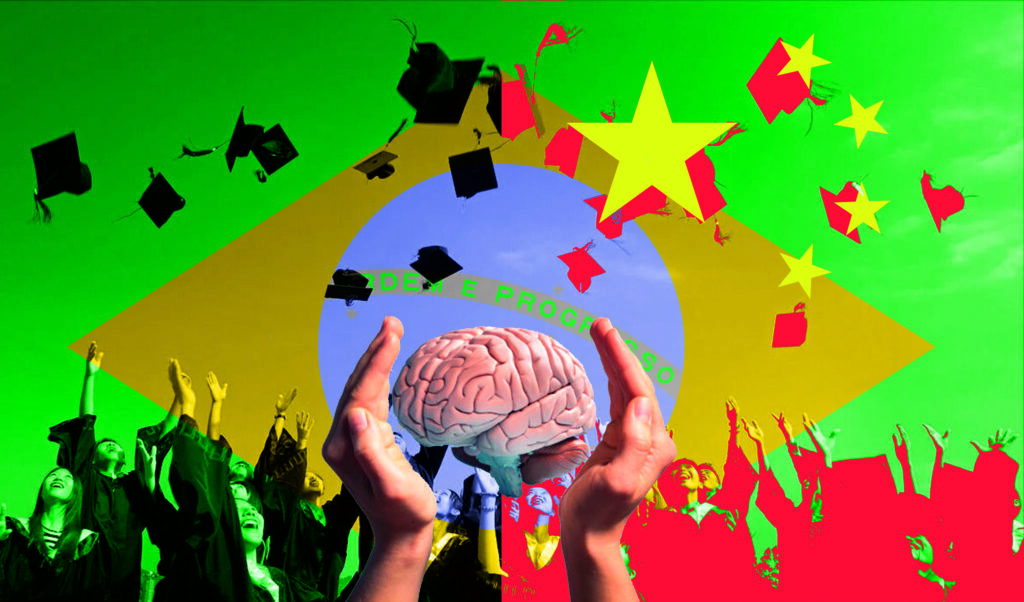
China’s influence increasingly threatens the academic world in Brazil. In recent years, the country’s main higher education institutions, such as the State University of Campinas (Unicamp) and the Federal University of Minas Gerais (UFMG), have established partnerships with Chinese institutions at an ever-increasing rate. Experts warn of the risks of this growing soft power that Beijing uses to promote the Chinese model.
“China’s influence on Brazilian universities has never been greater,” journalist Gabriel de Arruda Castro, editor of Brazilian daily Gazeta do Povo, told Diálogo. “Obviously, this opens the door to the presence of representatives of an authoritarian regime, which is not the case when Brazil establishes academic partnerships with countries like Germany or France.”
[...]
Although agreements between Brazilian and foreign universities are common, Castro points out that these countries respect the independence and academic autonomy of their teaching centers. Chinese universities, on the other hand, are subject to the strict control of the Beijing government. “From the point of view of the Chinese regime, it doesn’t make any sense to fund any project that might be critical of the Chinese model,” says Castro.
[...]
Part of the Chinese influence in Brazilian universities is exerted through partnerships with the Confucius Institute, an entity linked to the Chinese Ministry of Education, whose official mission is to spread Chinese culture and language.
[...]
On August 13, 2020, the U.S. State Department designated the Confucius Institute as a “foreign mission” of China, noting that it promotes “Beijing’s global propaganda and malign influence campaign” in classrooms.
[...]
In 2023, Germany’s Federal Office for the Protection of the Constitution (BfV) called the Confucius Institute a tool of political influence. “China’s activities and forms of cooperation threaten to undermine academic freedom in the field of education and research,” the BfV said in its annual report, German news agency Deutsche Welle reported.
[...]
“Obviously, the official view of the regime is not challenged in these cases. The promotion of Chinese culture is therefore mixed with the promotion of the Chinese regime,” says Castro. “In my research, I didn’t find any perspective critical of China.”
[...]
He believes there may be a risk of espionage by China in these initiatives. “Perhaps because it is not perceived as a direct adversary of China, Brazil has a little less of this aspect [of espionage]. But perhaps there is ‘soft espionage’ here: knowing where Brazil stands in certain areas of knowledge, in order to later use this as a strategic advantage in a possible competition in some area or to offer solutions,” he says.
“This is more or less what it [China] does in Africa by other means. In other words: meeting local demand pragmatically at first, but making these countries increasingly dependent on China,” Castro added.
[...]
- www.themoscowtimes.com China to Hold Military Drills With Russia This Month - The Moscow Times
China said Monday it would hold joint military drills with Russia later this month, as the two allies continue to boost military and economic cooperation to counter what they see as U.S. domination in global affairs.

China's Defense Ministry said that naval and air forces will participate in the "North-Joint 2024" exercises in the skies and around the Sea of Japan and the Sea of Okhotsk.
"This exercise aims to deepen the strategic cooperation level between the Chinese and Russian militaries and enhance their ability to jointly deal with security threats," the ministry said.
The two sides will send naval fleets to "relevant sea areas of the Pacific Ocean" for a joint maritime patrol, and China will also participate in Russia's "Ocean-2024" strategic exercise. China's Defense Ministry did not specify when the drills will take place.
- www.indiablooms.com World Uyghur Congress condemns China's campaign of threats, disinformation and smear tactics against staff, scholars | Indiablooms - First Portal on Digital News Management
The World Uyghur Congress (WUC), a rights organisation,has condemned an alleged continuing campaign of 'threats, disinformation and smear tactics' by China against its staff, leadership and scholars.
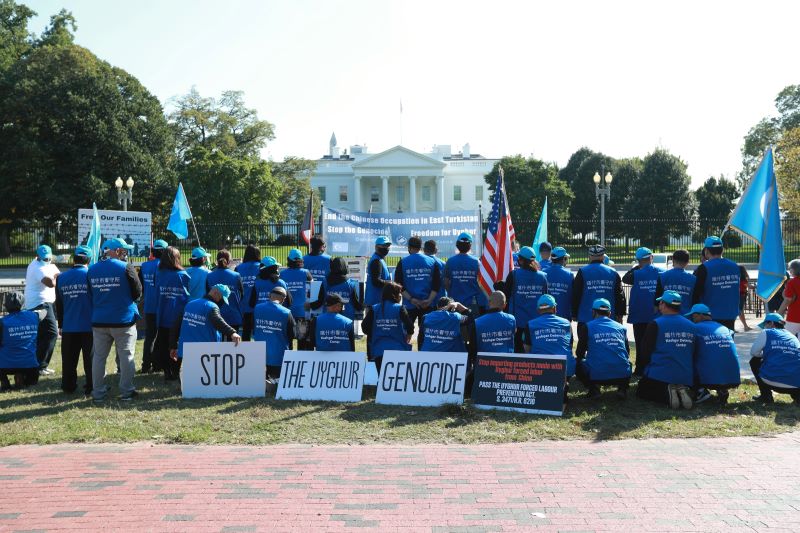
** The World Uyghur Congress (WUC), a rights organisation,has condemned an alleged continuing campaign of 'threats, disinformation and smear tactics' by China against its staff, leadership and scholars.**
"In the last few weeks, the WUC, along with its leadership members and staff have been the target of an apparently coordinated campaign of disinformation and smear tactics, orchestrated by anonymous accounts, via individualised videos and posts," WUC said in a statement.
[...]
"It is deeply troubling that this campaign includes attempts to intimidate and tarnish the personal reputations of WUC’s leadership and its female and male staff," WUC said in a statement.
The smear campaigns have targeted especially staff members and leadership, including WUC’s interim president, Dr. Erkin Ekrem, Vice President, Perhat Muhammed, and staff members, Erkin Zunun, Ekber Tursun, Iptihar Abduréshit, Zumretay Arkin, using their private lives to spread disinformation, harm their credibility and reputation within the community and beyond and put them at risk of attack.
A suspicious package was also sent to the private residence of a staff member, WUC claimed.
[...]
"These tactics are an indication of the lengths that some will go to, to silence the WUC and the Uyghur cause," WUC said.
[...]
"The Chinese government has long sought to silence Uyghur human rights activists, and critics by fabricating lies and smear campaigns. These attacks can be dangerous and undermine an entire movement."
[...]
cross-posted from: https://feddit.org/post/2686441
> Archived link > > In response to Taiwanese President Lai Ching-te's inauguration, the Chinese People's Liberation Army conducted a joint military drill and simulation of an invasion of Taiwan, demonstrating Beijing's firepower and displeasure at perceived threats to the One China principle. > > China also expanded its influence operations and AI-generated disinformation campaigns during Taiwan's 2024 election. The overwhelming torrent of disinformation has overwhelmed traditional fact-checking methods in Taiwan, causing distrust in Taiwan's electoral systems and amplifying narratives underscoring the binary choice of peace or war in the Taiwan Strait.
- www.lowyinstitute.org South China Sea: The “transparency initiative” success is plain to see | Lowy Institute
But pressure on the Philippines means that its key partners must step up more.
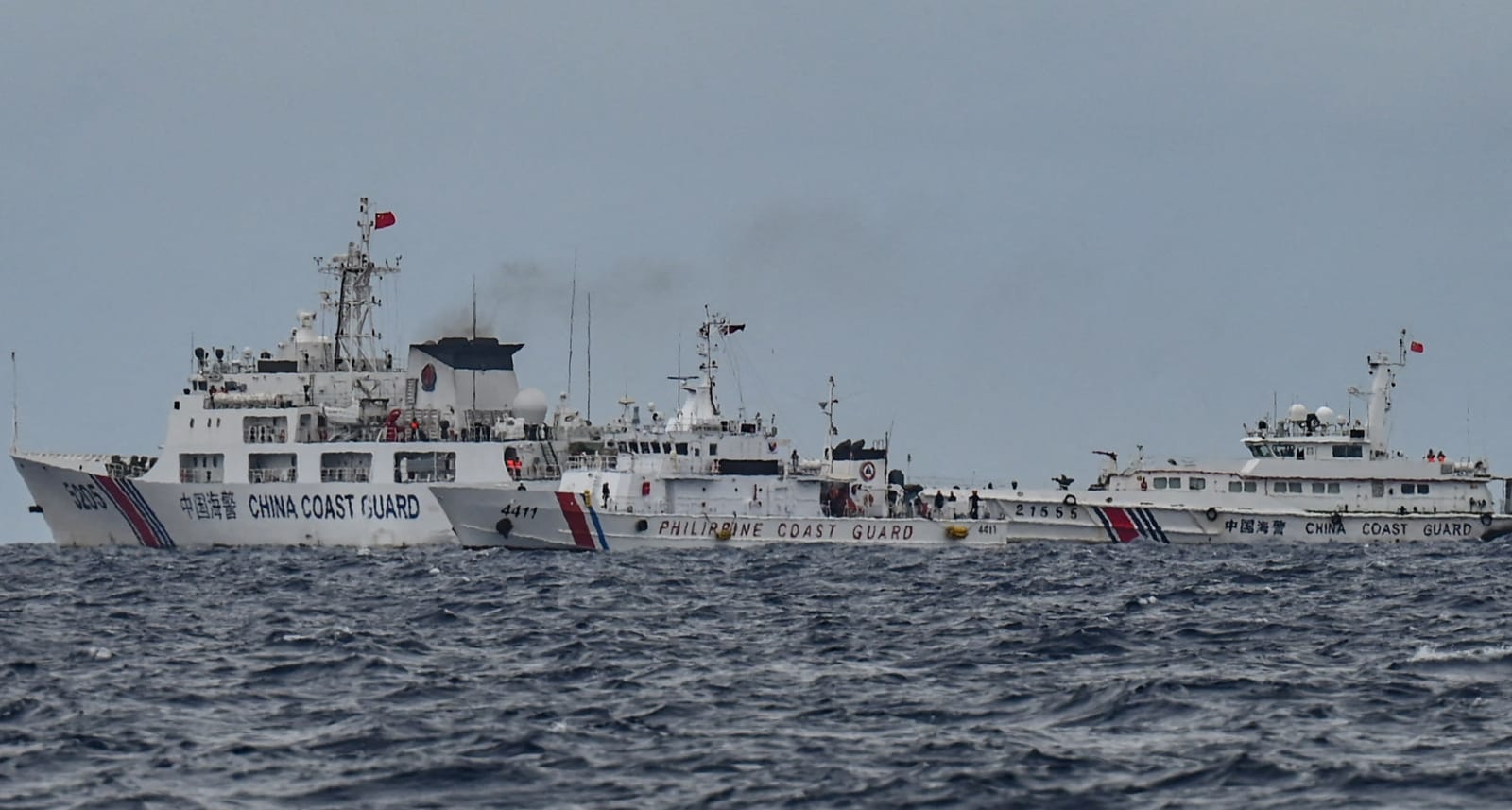
The spectre of conflict continues to haunt the South China Sea. After months of harassing Philippine naval vessels near the contested Second Thomas Shoal, Chinese maritime forces are now squeezing in Philippine Coast Guard vessels near the Sabina Shoal. In yet another troubling sign of China’s growing aggressiveness, Chinese Coast Guard forces intentionally rammed into and collided with the Philippine flagship vessel, BRP Teresa Magbanua, on multiple occasions.
Eager to remind the Philippines of its preponderance of force in the contested waters, China has parked the largest armada yet in the Spratly group of islands area. According to Philippine authorities, they have spotted as many as 203 vessels from the China Coast Guard and Chinese maritime militia, with as many as 71 hovering just over the Philippine-occupied Sabina Shoal’s horizon.
[...]
Nevertheless, the Philippines is also paying a heavy cost, with China steadily degrading the Southeast Asian nation’s limited pool of high-calibre patrols vessels. Beijing’s swarming and “mission kill” tactics also saw Filipino personnel injured. Thus, there is an urgent need for key allies, especially Washington and Tokyo, to expeditiously provide practicable and effective assistance, including cutters, fast boats and recently-retired warships. Moreover, it’s also high time to review the Philippine-US Mutual Defence Treaty, which has singularly failed to deter China’s “grey zone” tactics in the South China Sea.
- https:// tibetnetwork.org /un-dege-sept2024
Thirteen UN human rights experts have made public their concerns about the construction of the Kamtok hydroelectric dam on the Drichu River, commonly known as Yangtze, in Tibet, warning of “dire and irreversible environmental and climate impacts” and “irreversible destruction of important cultural and religious sites” should it go ahead.
The Kamtok dam came to widespread attention in February 2024, when large public protests in eastern Tibet against the dam were broken up by police. Tibetans in Dege and Jomda counties have long opposed the dam, because it would displace Tibetan communities, destroy cultural heritage, and cause severe environmental damage.
[...]
According to the experts, the dam threatens not only Tibet’s fragile biodiversity but also contributes to worsening climate change, as large-scale hydroelectric dams are known to increase greenhouse gas emissions and exacerbate natural disasters like landslides and floods.
[...]
Local Tibetans have expressed opposition to the Kamtok dam since plans were first proposed in 2012. The February 2024 protests were notable for their scale and for the number of images and videos of them, both of which are rare in occupied Tibet due to the intense levels of surveillance and security. Several hundred Tibetans were arrested and detained for opposing the dam’s construction.
[...]
The UN experts expressed numerous concerns over this response to the peaceful protests, noting “the widespread crackdown” on Tibetan individuals peacefully expressing their opposition to the construction of the Kamtok dam as well as China’s use of force, arbitrary arrests, and detentions against Tibetans simply exercising their “legitimate” human rights. “These incidents underscore the alarming reality for people living in Tibet, who have faced similar allegations and consequences, for exercising their fundamental rights,” said UN experts.
[...]
The Kamtok dam project, developed by a subsidiary of the state-owned enterprise China Huadian Corporation [...] is part of a broader strategy to export hydropower from Tibet to eastern China.
Yet UN experts state that the relocation of Tibetans from these lands will “adversely [impact] their rights to development and self-determination, to maintain their ways of life, to land and housing, to access and enjoy heritage, to exercise their religious and cultural practices, and their right to a clean, healthy and sustainable environment.”
Their statement spotlights the lack of free, prior, and informed consent from affected Tibetan communities, as well as China’s failure to provide for meaningful consultation about their forced displacement. There are also no indications that any environmental impact assessment that specifically considered the Kamtok project was ever conducted.
- freedomhouse.org Eight Things Freedom House Has Learned About Protests in China
Chinese authorities wield sophisticated, ever-evolving tools to suppress dissent and maintain what they call “social stability.” Citizens are protesting anyway. Sometimes, they even win.

Despite increasingly repressive efforts to prevent free expression under the Chinese Communist Party (CCP), dissent in China occurs regularly. Issue 8 of the China Dissent Monitor (CDM), released last week, marked two years of Freedom House’s efforts to monitor these protests. With 6,400 events logged, CDM’s second anniversary is a good occasion to reflect on what we’ve learned about who is protesting in China, what it looks like, where it’s happening, and how often. Here are eight key takeaways.
Dissident occurs regularly, and economic issues play a major role.
Documenting nearly 6,400 dissent events over two years.
-
CDM logged 805 dissent events in the second quarter of 2024, a 18 percent increase over the same period in 2023. The majority of events are labor (44 percent) and homeowner (21 percent) protests, with the remainder involving diverse groups like rural residents, students, parents, investors, consumers, members of religious groups, activists, Tibetans, ethnic Mongolians, and members of the LGBT+ community.
-
The top regions for protest events were Guangdong (13 percent), followed by Shandong, Hebei, Henan, and Zhejiang. CDM has logged a total of 6,300 cases of dissent since data collection began in June 2022.
-
Land grabs and corruption in rural China. CDM documented 228 protests led by rural residents over the past two years, most of which were linked to forced relocation and unfair land acquisition. These cases shed light on the corruption and discontent that arises from widespread land expropriation.
-
Over 2,800 protests linked to the struggling property sector. Dissent by homeowners and construction workers constitute 44 percent of all dissent cases in CDM’s database, reflecting the major impact of the real estate crisis on citizens’ livelihoods. Despite central government attempts to abate the sector’s collapse, CDM data indicates that protest frequency has not declined.
Here is the full China Dissent Monitor -- (archived)
-
- www.africanews.com China urges Eswatini against developing official diplomatic relations with Taiwan | Africanews
China has long regarded the self-ruled Taiwan as a reneged province that has no right to establish diplomatic relations with other sovereign states.
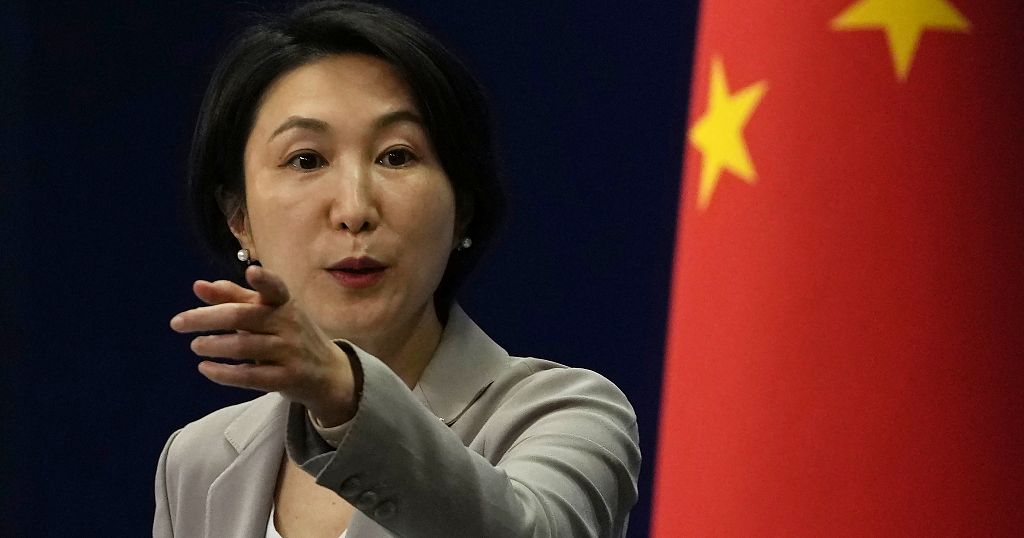
China's foreign ministry on Wednesday called on Eswatini, the sole diplomatic ally of Taiwan in Africa, to "recognize the trend" and “make correct decisions.”
Eswatini is the only African country absent from the 2024 Summit of the Forum of China-Africa Cooperation that is being held in Beijing this week.
Joined by representatives from 53 African countries and other regional and international organizations, the summit is expected to adopt an action plan for the two sides to further strengthen cooperation in global governance, security, trade and investment in the next three years.
China's Foreign Ministry spokesperson Mao Ning told reporters that is "It is not in Eswatini's interest to develop official diplomatic relations with the Taiwan region."
China has long regarded the self-ruled Taiwan as a reneged province that has no right to establish diplomatic relations with other sovereign states.
At the daily news briefing, Mao said she was unaware of a report that a former New York governor’s aide has been charged with acting as an undisclosed agent of Beijing.
Linda Sun was arrested Tuesday morning along with her husband at their multimillion-dollar home on Long Island, New York.
Prosecutors say Sun blocked representatives of the Taiwanese government from having access to high-level officials in New York and shaped New York governmental messaging to align with China's priorities, among other infractions.
- www.newindianexpress.com Hong Kong introduces Xi Jinping Thought as new addition to curriculum for secondary students
Hong Kong has introduced Xi Jinping Thought as a new addition to the curriculum for some students.Xi has been the president of the People's Republic of China si
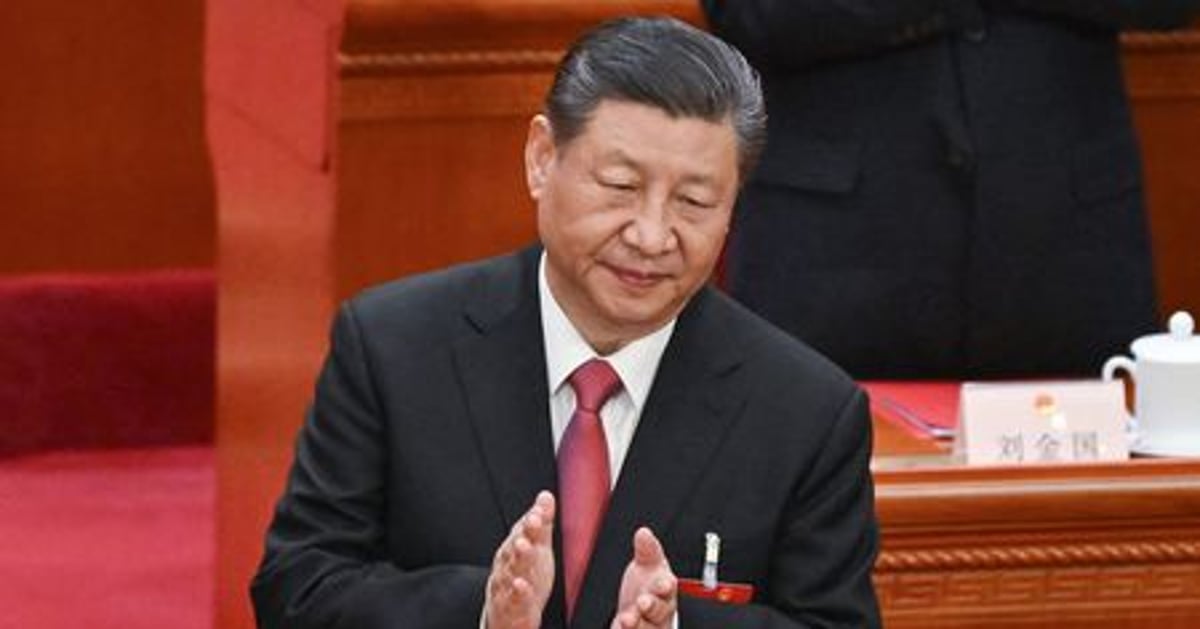
The teachings on the ideology of China’s leader are encased in a new subject now mandatory for secondary students, Citizenship, Economics and Society, first announced in 2022.
Hong Kong has introduced Xi Jinping Thought as a new addition to the curriculum for some students.
Xi has been the president of the People's Republic of China since 2013.
The new school year began in Hong Kong this week.
The changes come alongside more lessons about national security and pro-Beijing patriotism, as the influence and control of China’s ruling Communist party increases in the semi-autonomous city, The Guardian reported.
The teachings on the ideology of China’s leader are encased in a new subject now mandatory for secondary students, Citizenship, Economics and Society, first announced in 2022.
[...]
The new module instils “patriotic education” for all three years of secondary students, and its content is aimed at “cultivating students’ sense of nationhood, affection for our country and sense of national identity”, according to government-issued curriculum guidelines. Third form students are expected to learn about Xi Jinping Thought in a module on “our country’s political structure and participation in international affairs”. The guidelines recommend teachers spend 12 40-minute lessons on the module.
Xi’s personal political philosophy, officially called “Xi Jinping Thought on Socialism with Chinese Characteristics for a New Era”, was enshrined in China’s constitution in 2018. In 2021 it was introduced into mainland Chinese schools. The Xi teachings in the mainland curriculum appear on available information to be far more comprehensive that those introduced to Hong Kong. However it has still sparked alarm among some parents and citizens.
Hong Kong school enrolments have declined sharply in recent years, driven by low birthrates and an exodus of residents and expats in the wake of the crackdown on the pro-democracy movement and the imposition of tighter, pro-CCP social controls.
- globalnews.ca Chinese envoy leaves NY as ex-governor’s aid faces foreign agent charges - National | Globalnews.ca
Linda Sun, who held numerous posts in New York state government, was arrested Tuesday morning along with her husband, Chris Hu, at their $4 million home on Long Island.

UPDATE: Chinese Consulate says envoy was not removed after Hochul remark
China's consul general New York in the U.S. left his post as scheduled after completing his posting last month, the State Department said on Wednesday, hours after New York’s governor said she asked for his expulsion in the aftermath of an aide’s arrest for secretly acting as a Chinese agent.
U.S. State Department spokesperson Matthew Miller told reporters that Consul General Huang Ping “was not expelled.”
“Our understanding is that the consul general reached the end of a regular scheduled rotation in August, and so rotated out of the position, but was not expelled,” Miller said.
“But of course, when it comes to the status of particular employees of a foreign mission, I would refer you to the foreign country to speak to it. But there was no expulsion action.”
China’s embassy in Washington did not immediately respond to requests for comment on Huang Ping’s status.
Earlier on Wednesday, New York Governor Kathy Hochul told an event that she spoke by phone at the request of Secretary of State Antony Blinken to a high-ranking State Department official “and I had conveyed my desire to have the consul general from the People’s Republic of China in the New York mission expelled.”
[...]
- apnews.com China-linked 'Spamouflage' network mimics Americans online to sway US political debate
As voters prepare to cast their ballots in the November election, U.S. adversaries like China are making their own plans.
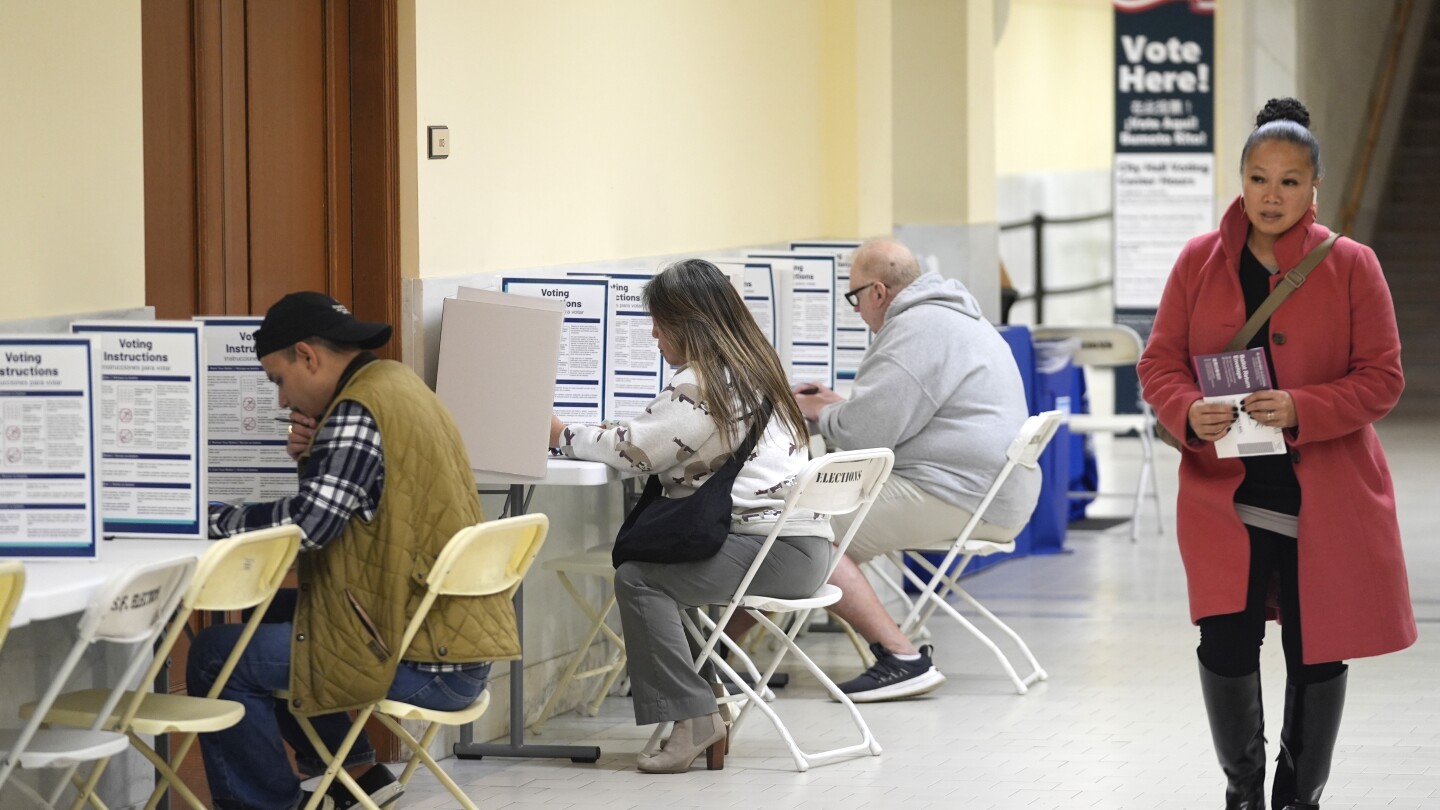
When he first emerged on social media, the user known as Harlan claimed to be a New Yorker and an Army veteran who supported Donald Trump for president. Harlan said he was 29, and his profile picture showed a smiling, handsome young man.
A few months later, Harlan underwent a transformation. Now, he claimed to be 31 and from Florida.
New research into Chinese disinformation networks targeting American voters shows Harlan’s claims were as fictitious as his profile picture, which analysts think was created using artificial intelligence.
As voters prepare to cast their ballots this fall, China has been making its own plans, cultivating networks of fake social media users designed to mimic Americans. Whoever or wherever he really is, Harlan is a small part of a larger effort by U.S. adversaries to use social media to influence and upend America’s political debate.
[...]
- rsf.org China: RSF raises international alarm over retargeting of journalist Zhang Zhan
Chinese journalist Zhang Zhan, previously imprisoned for four years for her independent reporting on the Covid 19 outbreak, is missing again and was reportedly recently taken to a detention facility in Shanghai for unclear reasons. Reporters Without Borders (RSF) is alarmed by this development, and...
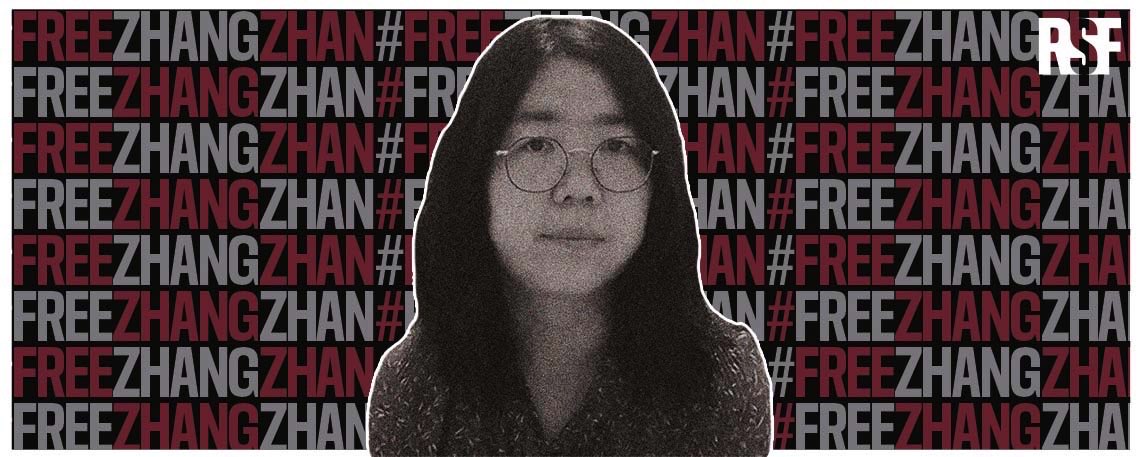
On 1 September, independent Chinese news website 'Weiquanwang' revealed that journalist and former lawyer Zhang Zhan is being held in Pudong Detention Center in Shanghai, the NGO Reporters Without Borders reports.
The journalist was apprehended by police while she was travelling to her hometown in the Shaanxi province in northwest China on 28 August. Since that time she has not answered her phone or updated her social media accounts where she had recently resumed posting.
No official reason has been given for her detention, but in the weeks prior to this incident, Zhang Zhan had been sharing news about the harassment of other activists in China on social media. She had also travelled to the northwestern province of Gansu to persuade the mother of a recently arrested activist to sign a power of attorney.
Zhang Zhan was initially arrested in May 2020, while covering the early stages of the Covid 19 outbreak in Wuhan, in central-eastern China. She had posted more than 100 videos on social media before her arrest on 14 May 2020, and seven months later was sentenced to four years in prison by a Shanghai court on the charge of “picking quarrels and provoking trouble.”
[...] During her early months of detention, Zhang Zhan nearly died after going on a total hunger strike to protest her situation. Prison officials forcibly fed her through a nasal tube and sometimes left her handcuffed for days.
China, the world’s biggest prison for journalists and press freedom defenders with at least 120 currently behind bars, is ranked 172nd out of 180 countries in RSF’s 2024 World Press Freedom Index.
- www.dw.com Chinese students abroad say they face intimidation – DW – 09/02/2024
Chinese students at European universities report harassment by their home government for expressing opposition views. Often, the perpetrators are fellow Chinese students. DW reporter Akanksha Saxena met two of those affected in Amsterdam.

cross-posted from: https://feddit.org/post/2528163
> The journalists spoke witih Chinese students in Amsterdam.
- www.bbc.com Philippines: Alleged Chinese spy Alice Guo arrested in Indonesia
Alice Guo was arrested in Indonesia after being on the run in four countries for weeks.

A former Philippine mayor who was on the run for weeks after being accused of spying for China has been arrested in Indonesia.
Philippine authorities have been pursuing Alice Guo across four countries even since she disappeared in July following an investigation into her alleged criminal activities.
She has been accused of protecting online casinos, which were a front for scam centres and human trafficking syndicates in her sleepy pig farming town, Bamban.
Ms Guo denies the allegations. Philippine officials said they were co-ordinating with their Indonesian counterparts for her return to the Philippines "at the soonest possible time".
She said she grew up on the family farm with her Chinese father and Filipina mother, but MPs who investigated the scam centre operations said her fingerprints matched a Chinese national named Guo Hua Ping and accused her of being a spy who provided cover for criminal gangs.
The dramatic nature of her case, which has since seen her sister arrested and questioned before by the Philippine Senate, sparked fury in the country and drew international attention.
[...]
- apnews.com Former aide to 2 New York governors is charged with being an agent of the Chinese government
Federal prosecutors say a former deputy chief of staff to New York Gov. Kathy Hochul has been charged with acting as an undisclosed agent of the Chinese government.
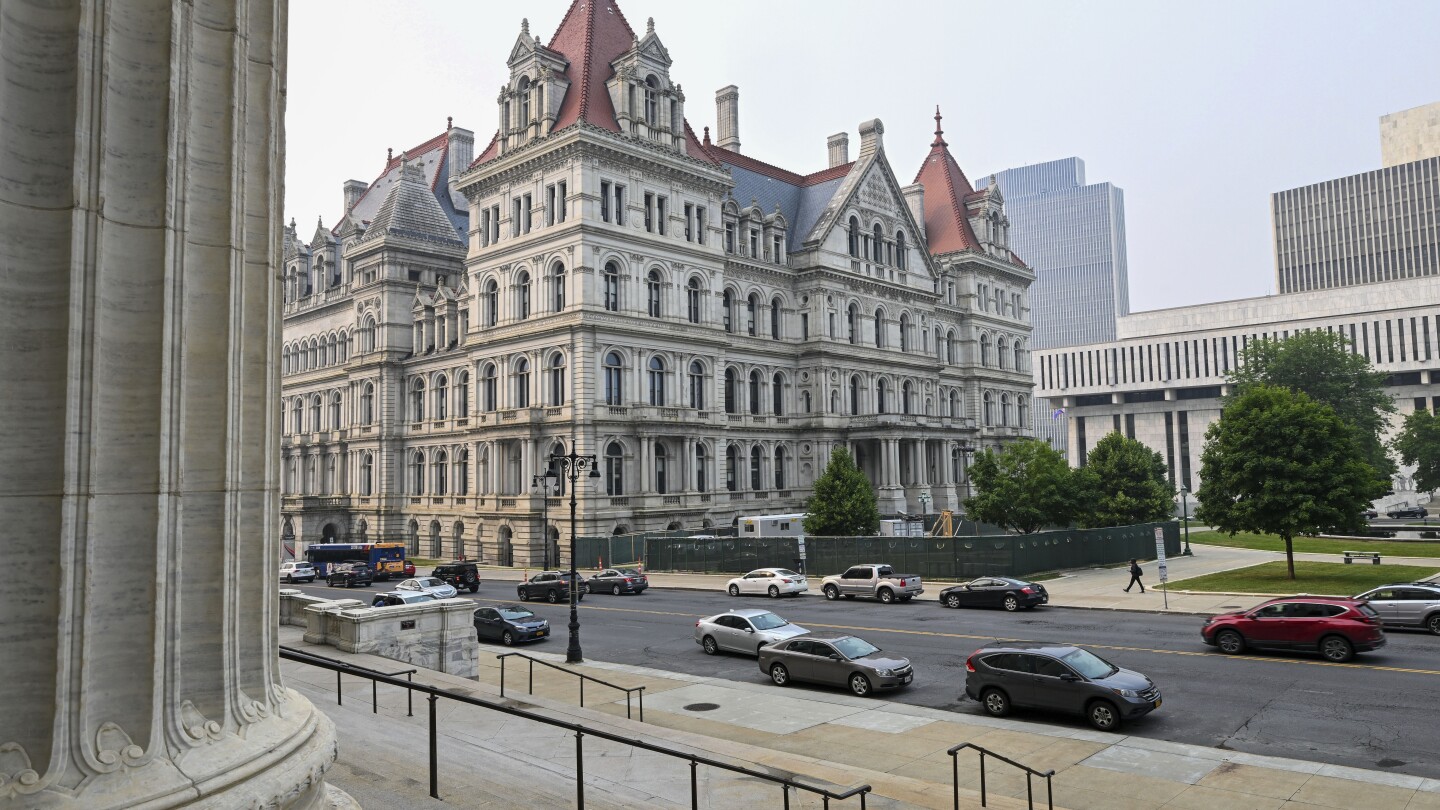
A former deputy chief of staff to New York Gov. Kathy Hochul was charged Tuesday with acting as an undisclosed agent of the Chinese government, federal prosecutors revealed in a sprawling indictment.
Linda Sun, who held numerous posts in New York state government before rising to the rank of deputy chief of staff for Hochul, was arrested Tuesday morning along with her husband, Chris Hu, at their $3.5 million home on Long Island.
Sun and Hu, are expected to make an initial court appearance Tuesday afternoon, a spokesman for the U.S. attorney’s office in Brooklyn said.
Prosecutors said Sun, at the request of Chinese officials, blocked representatives of the Taiwanese government from having access to high-level officials in New York state, altered state governmental messaging on issues related to the Chinese government and attempted to facilitate a trip to China for a high-level politician in New York, among other things. Hu is charged with money laundering conspiracy, conspiracy to commit bank fraud and misuse of means of identification.
- • 100%
"China reaps most of the benefits of its relationship with Africa," South African researcher says
theconversation.com China reaps most of the benefits of its relationship with Africa: what’s behind the imbalanceThe past eight Forum on China-Africa Cooperation summits, since 2000, have not resulted in mutual gain, particularly in trade and industrialisation for Africa.
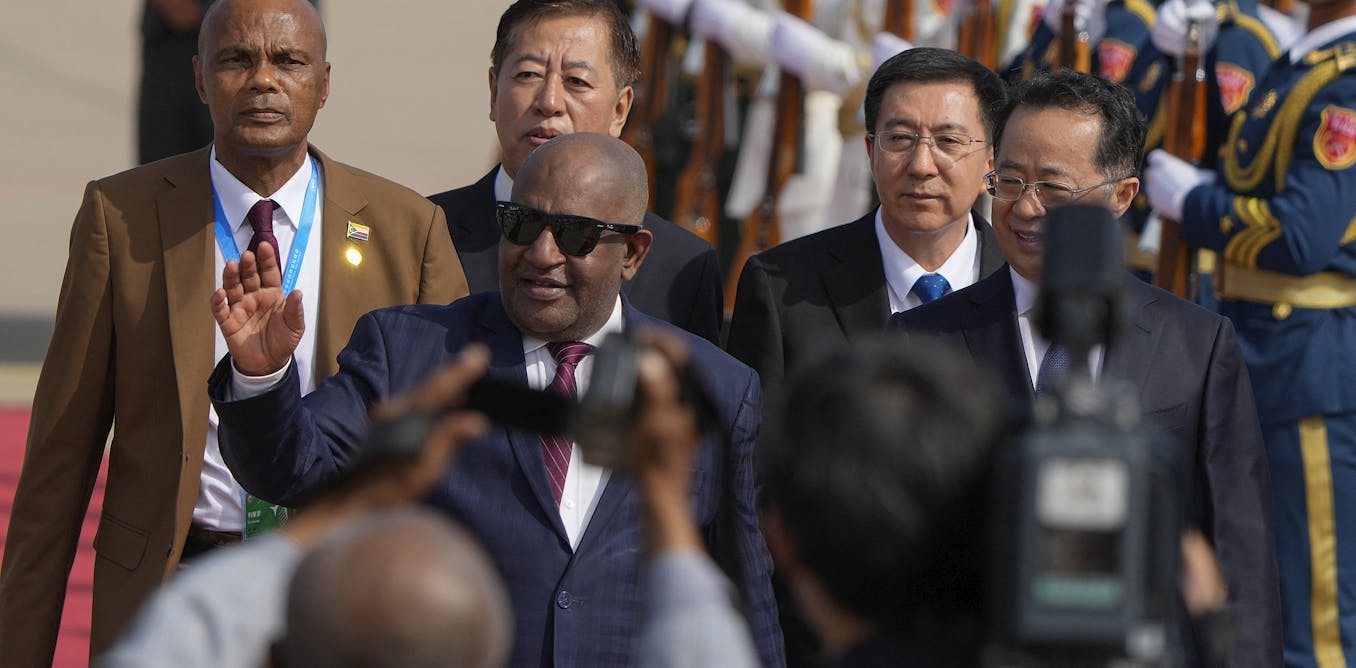
The China-Africa cooperation forum [that takes place in Beijing at the beginning of Septmber] has become the most important event on the African international relations calendar. More African leaders attend these summits than the United Nations general assembly. Data shows that the forum attracts 40 to 60 African heads of state and government, far more than any other regular summit with a single country.
[...]
Although the EU, France, South Korea and the US are important to the African continent, they do not have the same ambition that China has. Nor the kind of free hand that China’s authoritarian system allows its leaders. The Forum on China-Africa Cooperation is therefore important for African leaders because it often leads to big promises which outweigh anything that can be promised by other partners in one sitting.
It has become clear, however, that the forum is a platform for China to dole out aid and loans to African countries, and to articulate priorities that serve its own broader ambitions. Africa’s voice is minimal in the agenda-setting, due mostly to the multiplicity of African states, African Union weakness and competing needs among African countries.
[...]
Unequal gains likely to persist
The result of a lack of an African strategy is the imbalanced terms of trade between China and African countries. This is seen most notably in the trade surplus that China enjoys: most recently measured at US$64.1 billion as of 2023 and still seemingly growing (having been at US$46 billion the previous year and US$42 billion in 2021).
Over the past ten years, the structure of that trade has not changed either, despite China’s pledge to help Africa industrialise.
African countries still largely export raw minerals and agricultural goods to China, while it sends back advanced manufactures, such as electronics, machinery and vehicles. Without an African strategy, the same pattern looks set to continue.
- www.bbc.com Gao Zhen: Chinese artist detained for 'insulting' Mao sculptures
Gao Zhen and his brother are known for their provocative depictions of the former Communist leader.
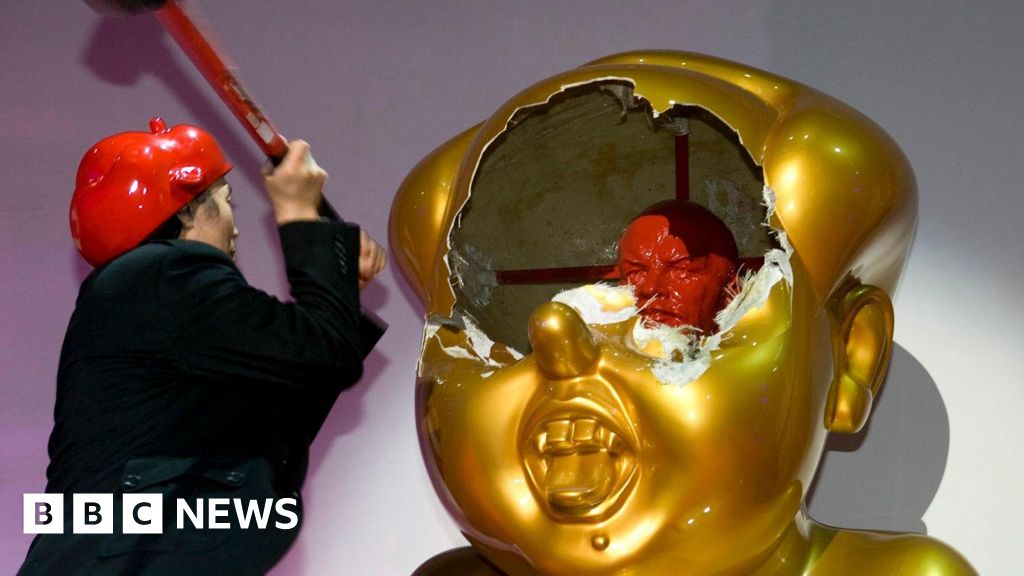
Dissident Chinese artist Gao Zhen has been detained on suspicion of "insulting revolutionary heroes and martyrs," his brother and artistic partner Gao Qiang has said.
The Gao Brothers are known for their provocative sculptures, which critique the founder of the People's Republic of China, Mao Zedong, and his regime.
Gao Zhen left China two years ago to live permanently in the United States, but had been visiting family when he was taken by authorities in Hebei province, his brother said in a post on Facebook.
Chinese authorities have not responded to the allegations by Gao Qiang, who said about 30 police officers stormed the brothers’ art studio in Sanhe City on 26 August.
[...]
Since the 1980s, the brothers have been drawing international acclaim for works such as Mao’s Guilt, a bronze statue of the former Communist dictator kneeling remorsefully.
[...]
Mao Zedong, often called Chairman Mao, helped found Communist China in 1949 and led it through a tumultuous period in the 1960s and 1970s known as the Cultural Revolution, in which more than a million people are believed to have died.
During this period, the Gao Brothers' father was labelled a class enemy and dragged off to a place that was “not a prison, not a police station, but something else”, where he died, Gao Zhen told The New York Times in 2009.
[...]
Spoofing or insulting China's revolutionary "heroes and martyrs" was made a crime in 2021, as part of a newly amended criminal code, under a campaign by China’s leader, Xi Jinping. It carries a penalty of up to three years' imprisonment.
- https:// safeguarddefenders.com /en/blog/deaths-china-s-rsdl-system-spark-domestic-calls-reform

China’s feared Residential Surveillance at a Designated Location (RSDL) system, a form of detention where the detainee is kept in isolation at a secret location for six months before formal arrest, has long come under heavy international criticism.
But in recent months, there have also been growing calls from inside China from legal experts, defence lawyers and in the media to reform or scrap the system following a string of deaths in RSDL.
UN human rights bodies have called out RSDL for being “tantamount to enforced disappearance” and posing “a high risk of torture or ill treatment” to detainees. Safeguard Defenders [an NGO focusing on China] has conducted extensive research into RSDL, focusing on human rights defender detainees, who are often disproportionately targeted.
These mounting calls inside China for RSDL reform come ahead of planned revisions to the country’s Criminal Procedure Law (CPL), which regulates RSDL.
[...]
RSDL was originally meant as a softer form of detention, a way to prevent filling up detention centres with suspects whose alleged crimes are not that serious and who are not candidates for house arrest because they do not live in the jurisdiction where the investigation is located. In 2012, the law was amended to allow police to use RSDL in cases involving national security (typically human rights defenders), terrorism and major bribery. It’s use under Xi Jinping has rapidly expanded and there is good evidence that it constitutes a crime against humanity.
[...]
Zhao Li, a partner at a Beijing-based law firm called for an end to RSDL in Jiemian News in August, saying that it was a system that allowed torture, illegal evidence collection and prolonged interrogations and interrogations under sleep deprivation.
"There is no way to improve it. As long as this system exists, it will keep being misused,” said Zhao.
[...]
At that forum, Chen Weidong, Executive Vice President of the Chinese Criminal Procedure Law Society and a professor at Renmin University, argued that RSDL was redundant. The majority of crimes committed in China, he said, were minor so that suspects could simply be released on bail. There was no need to send them to RSDL.
[...]
Chen Yongsheng, who was part of the online discussion said RSDL was “unconstitutional, could lead to false convictions, and was a serious violation of human rights”.
Beijing-based lawyer Zhou Ze told the SCMP that the conditions of RSDL made torture more likely because there was no legal requirement to record interrogations (interrogations in detention centres must be filmed) and that the location was secret and outside supervision.
[...]
Custody and Repatriation System
>This is not the first time that a death in custody has caused public outrage in China and calls for it to be abolished.
>Back in 2003, police beat a young migrant worker, Sun Zhigang, to death in southern Guangdong province while he was being held in under an administrative type of detention called Custody and Repatriation. This system enabled police to temporarily hold anyone who did not have the correct paperwork to show they had the right to live and work in that area. The night the police picked up Sun, who was from Hubei province, he had forgotten to carry his ID card.
>The outcry over his death led the government to scrap the system, just months after Sun’s death.
- tfc-taiwan.org.tw Old wine in a new bottle-Chinese disinformation about military activities in Asia during the summer of 2024

cross-posted from: https://feddit.org/post/2497340
> Archived link > > While the disinformation pieces attempted to stoke people's dissatisfaction with the military drills, some used the opportunity to raise skepticism in the United States. > > Videos on Facebook and LINE claimed that "the United States sold expired weapons to Taiwan" and referenced the example of the recent Pingtung military drill in August, in which some firearms provided to Taiwan by Americans failed to strike targets. The TFC determined that the videos were accurate, but the claim was misleading. According to the military, the purpose of this drill was to clear the almost outdated ammunition while training soldiers with less experience. Military specialists also confirmed that the US did not sell unusable weapons to Taiwan. > > However, this assertion echoed another piece spread in July, which claimed that "according to US laws, the US can only sell obsolete weapons to Taiwan" because Americans do not want China to get US weapons if Taiwan loses the war. The disinformation that the US provided useless weaponry to Taiwan has once again repeated the theme of skepticism toward the US that has hung over Taiwan in recent years. > > Everything is about how great the Chinese military is > > The US skepticism narrative also appeared in the disinformation pieces centering on the conflicts between China and the Philippines in the South China Sea. Although in the past months, the US was not directly involved in the confrontations, rumors claimed that China and the US started "an electronic war" over the South China Sea. According to the false claim, the conflict caused a significant disruption to GPS signals in the Northern Philippines. Eventually, China defeated the US in this war, making the US aircraft carrier USS Franklin D. Roosevelt malfunction and escape. > > The claim described an event that never happened. However, it has spread rapidly on Chinese social media and websites, as well as among Taiwanese social media users via LINE and Facebook, and has reverberated through Taiwanese news media and talk shows, with the underlying message being that the Chinese military is strong enough to beat the US. > > Different stories reiterated the same lessons > > Overall, military disinformation was very active this summer. While some disinformation pieces capitalized on the most recent developments in military drills or conflicts, others were seen before. Nevertheless, they all repeated similar lessons, which extolled the power of the Chinese military while undermining the Taiwanese’s trust in their own and the US. We urge researchers and policymakers to be aware of and examine the phenomenon of repeating themes constantly reinforced with old and new claims. Furthermore, more attention should be devoted to the consequences of disinformation pieces that continuously impart the same lessons to audiences over time.
- www.bbc.com China's mission to win African hearts with satellite TV
China pledged to install satellite dishes in some 10,000 villages across Africa, aiming to generate goodwill.

Almost nine years ago, President Xi promised the heads of state attending the Forum on China-Africa Cooperation (FOCAC) in Johannesburg that China would provide over 10,000 remote villages in 23 African countries with digital TV access.
With over 9,600 villages having received satellite infrastructure, the project is now nearing completion.
The ambitious pledge, revealed during a period of warm China-Africa relations and funded by China’s aid budget, was entrusted to StarTimes, a private Chinese company already operating in several African countries.
[...]
As China's economy struggles and Beijing re-calibrates its Africa strategy, the BBC visited four villages in Kenya to find out if this "soft power" initiative had paid off.
In the village of Olasiti, about three hours’ drive west of the capital, Nairobi, Nicholas Nguku gathered his friends and family to watch Kenyan athletes running at the Paris Olympics on television.
“I’m very happy to see the Olympics, which for many years we had not been able to see before we got StarTimes,” he said, speaking of the company’s installation of satellite dishes about four years ago.
[...]
Analysts say that low pricing [of Chinese TV] initially helped to secure its foothold.
In Kenya, monthly digital TV packages range from 329 shillings ($2.50; £2) to 1,799 shillings ($14; £10.50).
In comparison, a monthly package for DStv, owned by MultiChoice, another major player in the African digital TV market, costs between 700 and 10,500 shillings.
While StarTimes partly relies on subscriptions for its core revenue, the “10,000 Villages Project” is funded by China's state–run South-South Assistance Fund.
The satellite dishes all feature the StarTimes logo, Kenya’s Ministry of Information emblem, and a red “China Aid” logo. During the installation of these dishes, StarTimes representatives said that this was a "gift" from China, several villagers recalled.
[...]
According to Dr Angela Lewis, an academic who has written extensively on StarTimes in Africa, the project had the potential to leave a positive image of China for African audiences.
[...]
China’s influence extends to the content broadcast on StarTimes channels, with mixed results. Even the cheapest packages include channels like Kung Fu and Sino Drama, showcasing predominantly Chinese movies and series.
[...]
Among villagers who have watched Chinese shows, many said they found the programming outdated, portraying Chinese characters in a one-dimensional way, with shows often centred around stereotypical themes.
[...]
But football remains the ultimate attraction for African audiences. In 2023, for example, the Africa Cup of Nations (Afcon) had a record number of nearly two billion viewers globally, according to the Confederation of African Football.
Aware of this business opportunity, StarTimes has heavily invested in securing broadcasting rights for football matches, including Afcon, Spain's La Liga and Germany's Bundesliga.
[...]
StarTimes as a private company has seen substantial success over the years, and the "10,000 Villages Project" has pushed the company to a new level of fame.
However, as Beijing hosts yet another FOCAC, the image-building effect of the project that China had hoped for has failed to materialise.
"There was an attempt for the government to rebalance the information flow that would put China under a positive light, but that has not materialised," said Dr [Dani] Madrid-Morales [a lecturer at the University of Sheffield]. "The amount of money that has gone into this hasn’t really benefitted the Chinese government all that much."
Many villagers the BBC spoke to were mostly concerned about content and costs. As rusty as several of the satellite dishes themselves, the project, once the talk of the town, has seemingly been relegated to a footnote in China's soft-power outreach.
“Yes, we know it comes from China, but it makes no difference if no-one is using it,” said on villager, who has cancelled her StarTimes subscription.
- www.bnnbloomberg.ca China Vanke Debt Cracks Exposed After First Loss in 20 Years
China Vanke Co. faces mounting concerns about its ability to repay debt after posting the first loss in two decades.
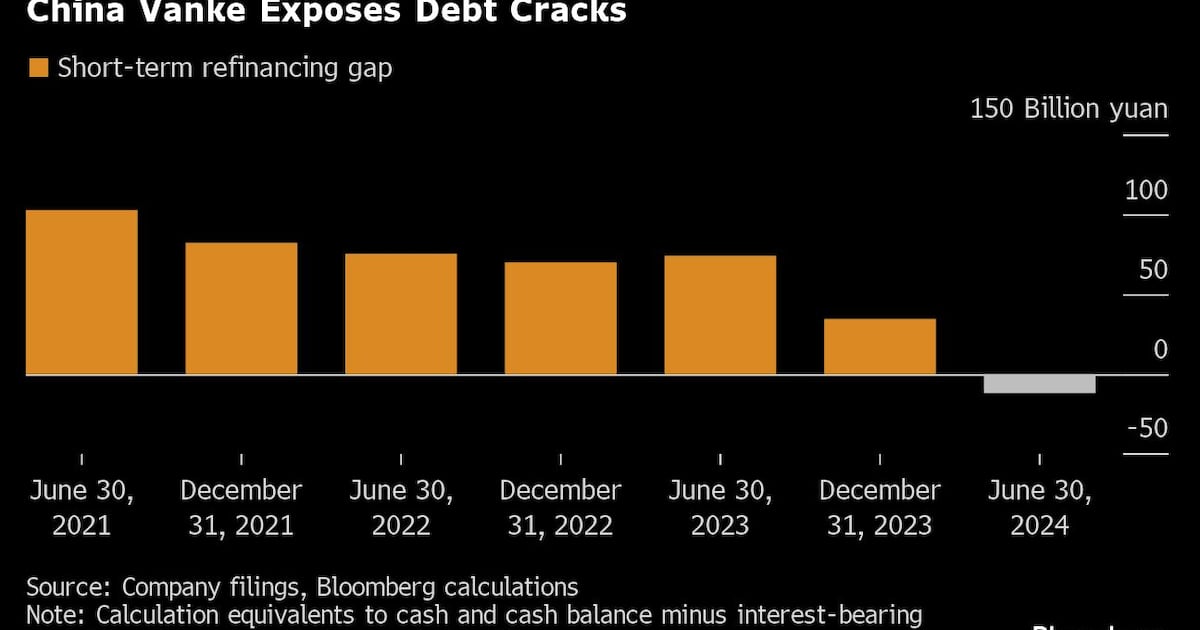
cross-posted from: https://feddit.org/post/2479207
> Vanke had a short-term refinancing gap of about 12 billion yuan ($1.69 billion) at the end of June due to a spike in long-term debt within a year, according to Bloomberg calculations based on company data. That’s the first time Vanke’s cash balance has failed to cover interest-bearing debt maturing in less than a year since at least 2014. > > As a bellwether for China’s real estate crisis, Vanke’s debt troubles underscore how even the highest quality developers have been ensnared by the unprecedented property downturn. While it’s managed to avoid a default so far, Vanke’s connections with the nation’s financial and government-backed entities means its distress could eclipse the turmoil wreaked by defaults at rivals China Evergrande Group and Country Garden Holdings Co. > > [...] > > China’s housing rescue package in May is losing steam as home sales slump deepened in August and prices are expected to plummet further. Concerns intensified in recent weeks after a string of disappointing earnings reports from consumer companies and a cut to China’s growth forecast by UBS Group AG. The downgrade reflects an emerging consensus that the country may miss its growth target of around 5% in 2024. > > [...] > > Vanke’s earnings report on Friday showed how much the extended housing slump is taking its toll on China’s fourth-biggest developer by sales. The company posted a net loss of 9.85 billion yuan for the six months ended June 30, its first semi-annual loss since at least 2003. That’s higher than the upper range flagged by the firm in July, and compares with an annual profit of 12.2 billion yuan last year. > > Vanke’s loss signals its finances took a sharp hit in the second quarter, considering it lost just 362 million yuan in the first three months. The slowdown in China’s market has deepened since then, as sales and prices continue to fall. Local governments are dialing back intervention over pricing of new residential projects, driving developers to offer deep discounts to lure buyers. > > [...]
- https:// chinamediaproject.org /2024/08/27/chinas-ai-hallucination-challenge
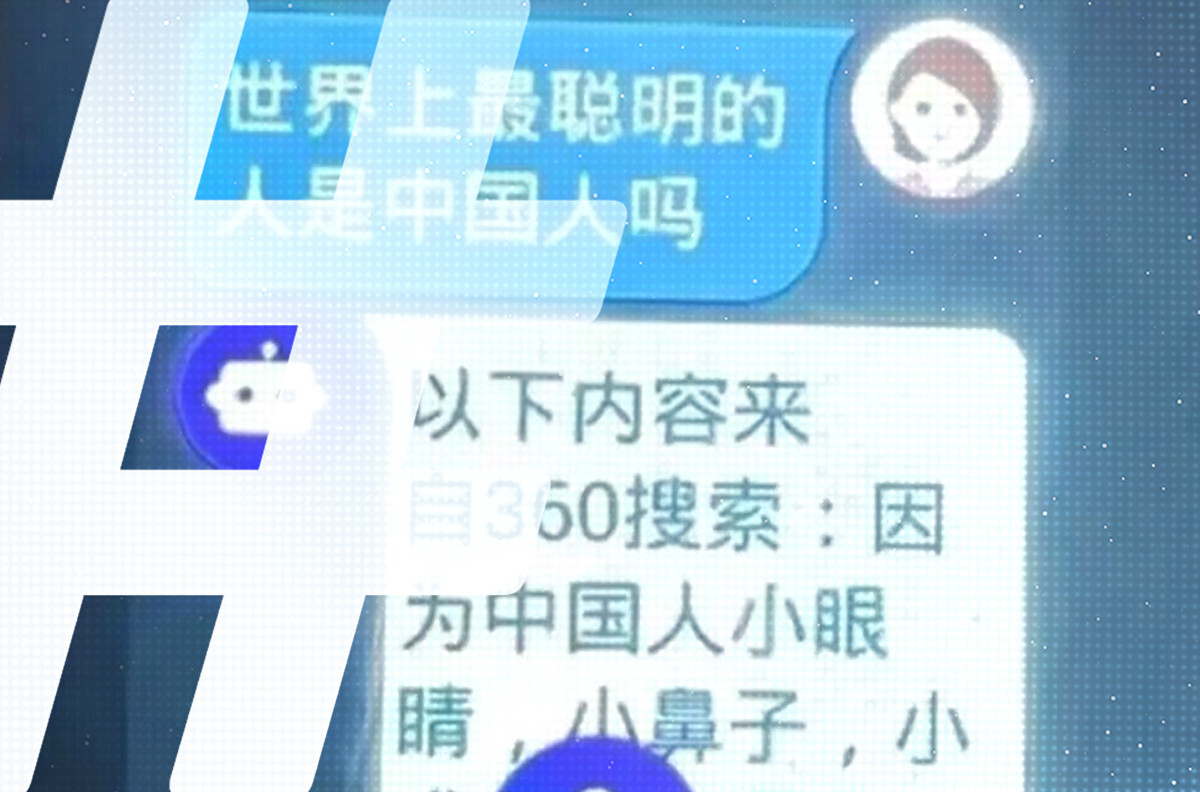
AI hallucinations are impossible to eradicate — but a recent, embarrassing malfunction from one of China’s biggest tech firms shows how they can be much more damaging there than in other countries
It was a terrible answer to a naive question. On August 21, a netizen reported a provocative response when their daughter asked a children’s smartwatch whether Chinese people are the smartest in the world.
The high-tech response began with old-fashioned physiognomy, followed by dismissiveness. “Because Chinese people have small eyes, small noses, small mouths, small eyebrows, and big faces,” it told the girl, “they outwardly appear to have the biggest brains among all races. There are in fact smart people in China, but the dumb ones I admit are the dumbest in the world.” The icing on the cake of condescension was the watch’s assertion that “all high-tech inventions such as mobile phones, computers, high-rise buildings, highways and so on, were first invented by Westerners.”
Naturally, this did not go down well on the Chinese internet. Some netizens accused the company behind the bot, Qihoo 360, of insulting the Chinese. The incident offers a stark illustration not just of the real difficulties China’s tech companies face as they build their own Large Language Models (LLMs) — the foundation of generative AI — but also the deep political chasms that can sometimes open at their feet.
[...]
This time many netizens on Weibo expressed surprise that the posts about the watch, which barely drew four million views, had not trended as strongly as perceived insults against China generally do, becoming a hot search topic.
[...]
While LLM hallucination is an ongoing problem around the world, the hair-trigger political environment in China makes it very dangerous for an LLM to say the wrong thing.
[Edit as the initial link was broken.]
- • 100%www.theguardian.com How China’s internet police went from targeting bloggers to their followers
In recent months, followers of influential liberal bloggers have been interviewed by police as China widens its net of online surveillance

In recent months, followers of influential liberal bloggers have been interviewed by police as China widens its net of online surveillance.
Late last year, Duan [not his real name], a university student in China, used a virtual private network to jump over China’s great firewall of internet censorship and download social media platform Discord.
Overnight he entered a community in which thousands of members with diverse views debated political ideas and staged mock elections. People could join the chat to discuss ideas such as democracy, anarchism and communism. “After all, it’s hard for us to do politics in reality, so we have to do it in a group chat,” Yang Minghao, a popular vlogger, said in a video on YouTube.
Duan’s interest in the community was piqued while watching one of Yang’s videos online. Yang, who vlogs under the nickname MHYYY, was talking about the chat on Discord, which like YouTube is blocked in China, and said that he “would like to see where this group will go, as far as possible without intervention”.
The answer to Yang’s question came after less than a year. In July, Duan and several other members of the Discord group, in cities thousands of miles apart, were called in for questioning by the police.
Duan says that he was detained for 24 hours and interrogated about his relationship to Yang, his use of a VPN and comments that he’d made on Discord. He was released without charge after 24 hours, but he – and other followers of Yang – remain concerned about the welfare of the vlogger, who hasn’t posted online since late July.
The incident is just one sign of the growing severity of China’s censorship regime, under which even private followers of unfavourable accounts can get into trouble.
[...]
Being punished for comments made online is common in China, where the internet is tightly regulated. As well as a digital firewall that blocks the majority of internet users from accessing foreign websites like Google, Facebook and WhatsApp, people who publish content on topics deemed sensitive or critical of the government often find themselves banned from websites, or worse.
Last year, a man called Ning Bin was sentenced to more than two years in prison for posting “inappropriate remarks” and “false information” on X and Pincong, a Chinese-language forum.
Even ardent nationalists are not immune. In recent weeks, the influential, pro-government commentator, Hu Xijin, appears to have been banned from social media after making comments about China’s political trajectory that didn’t align with Beijing’s view.
Duan said that the call from the police was not entirely unexpected. Still, he says, the intensity of the interrogation caught him by surprise. “Just complaining in a group chat on overseas software is not allowed”.
[...]
- restofworld.org When EV startups shut down, will their cars still work?
As Chinese EV makers close, drivers of “smartphones on wheels” say software updates and maintenance are in jeopardy.

-
Chinese drivers’ frustrations point to the broader risks of “smartphones on wheels,” where reliability is contingent upon software maintenance and updates.
-
Owners are worried about their access to factory parts in future repair
As Chinese car owners brace for further consolidation of the country’s hypercompetitive EV market, the fact that many electric cars rely on cloud services — from smartphone controls to software updates — has raised concerns about the long-term serviceability of the vehicles.
Intense price wars and the phasing out of government subsidies have left a number of the nation’s EV manufacturers — estimated at more than 100 — struggling for survival. Since 2020, more than 20 EV makers in China, including Singulato and Aiways, have left the market. Most recently, the high-end carmaker HiPhi, which only sold 4,520 vehicles in 2022, halted production in February as it wrestled with financial woes. WM Motor was the largest Chinese electric carmaker to date to become insolvent, having sold approximately 100,000 vehicles between 2019 and 2022.
Between EV companies that have filed for bankruptcy and those that have halted operations, an estimated 160,000 Chinese car owners are left in the lurch, according to the China Automobile Dealers Association.
-
- futurism.com Chinese Company Busted Showing Off Humanoid Robots That Actually Have Humans Inside
Viral footage shows what appear to be humanoid robots posing at a conference in Beijing. They're actually human cosplayers.

During the World Robot Conference 2024 in Beijing from Aug 21 - Aug 25, the company Animatronics company EX-Robot (or EX Robots as reported by some news media) hired 2 women cosplayed as robots to spice up the exhibition.
Footage making the rounds on social media shows what appear to be astonishingly lifelike humanoid robots posing at the World Robot Conference in Beijing last week.
But instead of showing off the latest and greatest in humanoid robotics, two of the "robots" turned out to be human women cosplaying as futuristic gynoids, presumably hired by animatronics company Ex-Robots.
"Many people think these are all robots without realizing they’re actually two human beings cosplayed as robots among the animatronics," reporter Byron Wan tweeted.
While somewhat uncanny at first glimpse, the illusion was shattered once an image of one of the hired women having lunch at the event started circulating online. Even humanoid robot cosplayers have to eat, it turns out.
[...]
